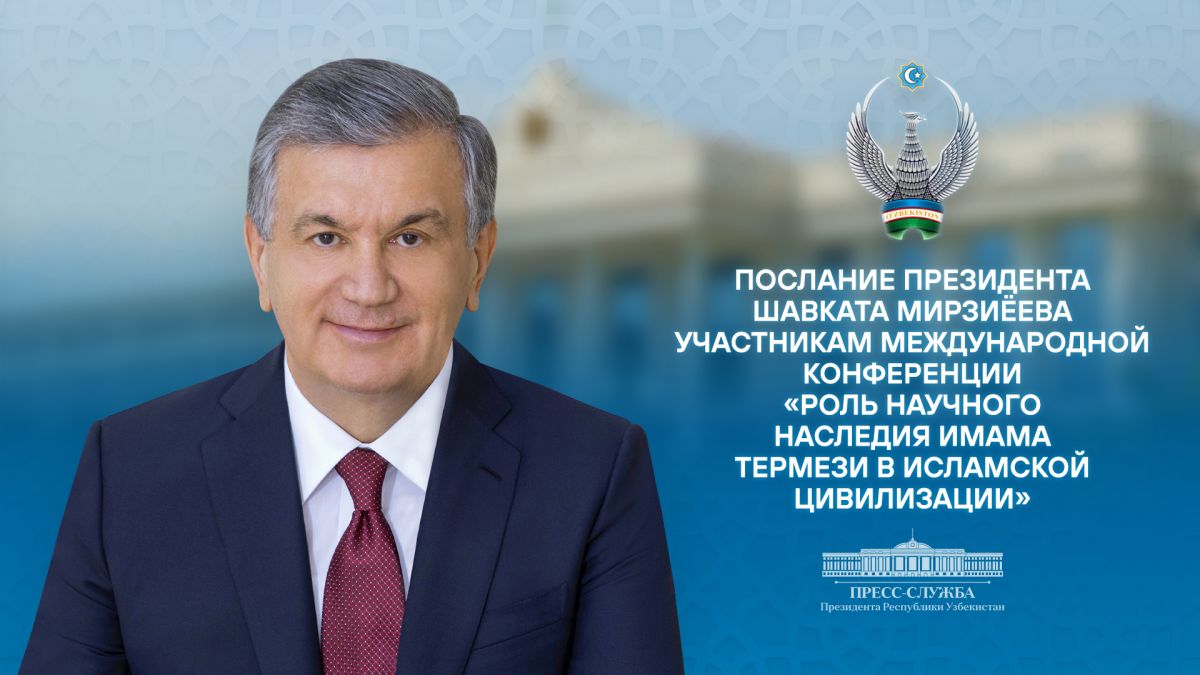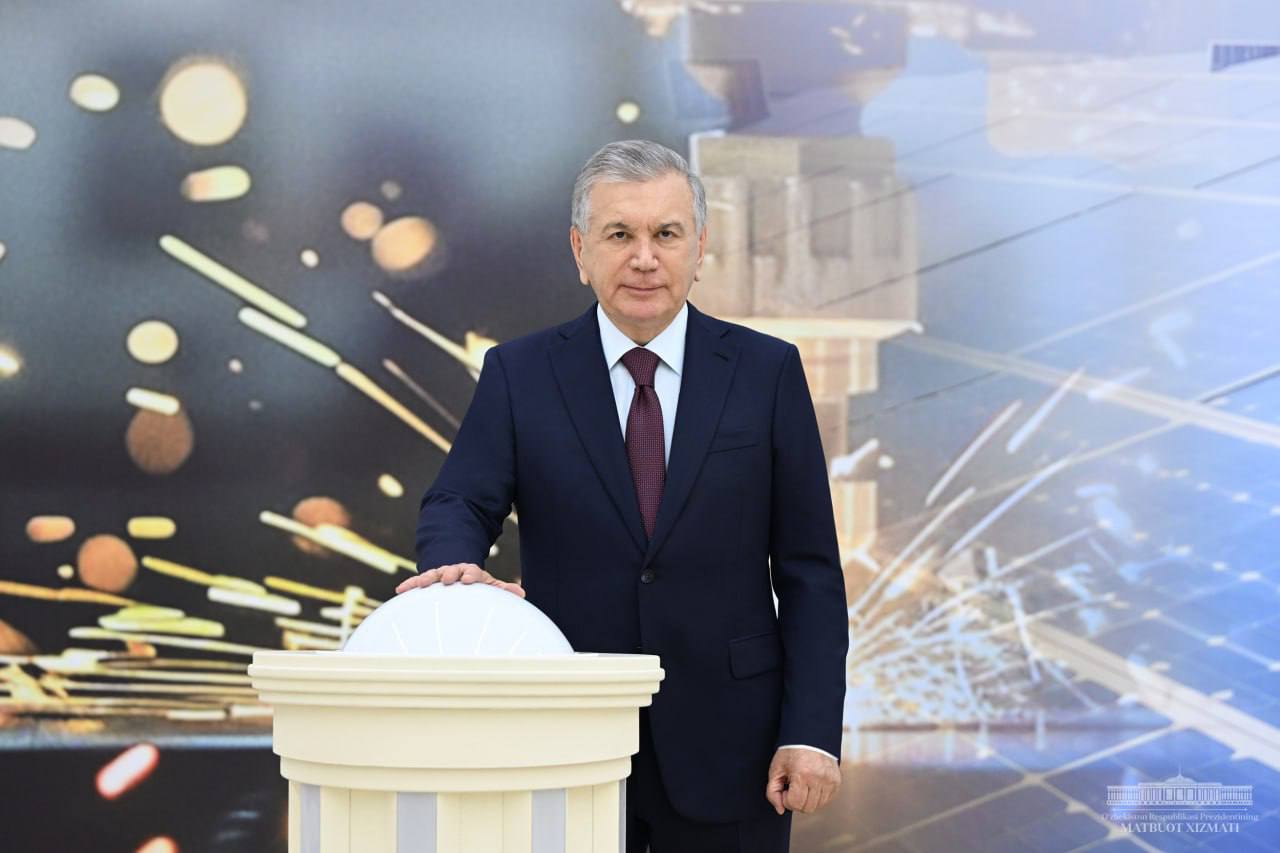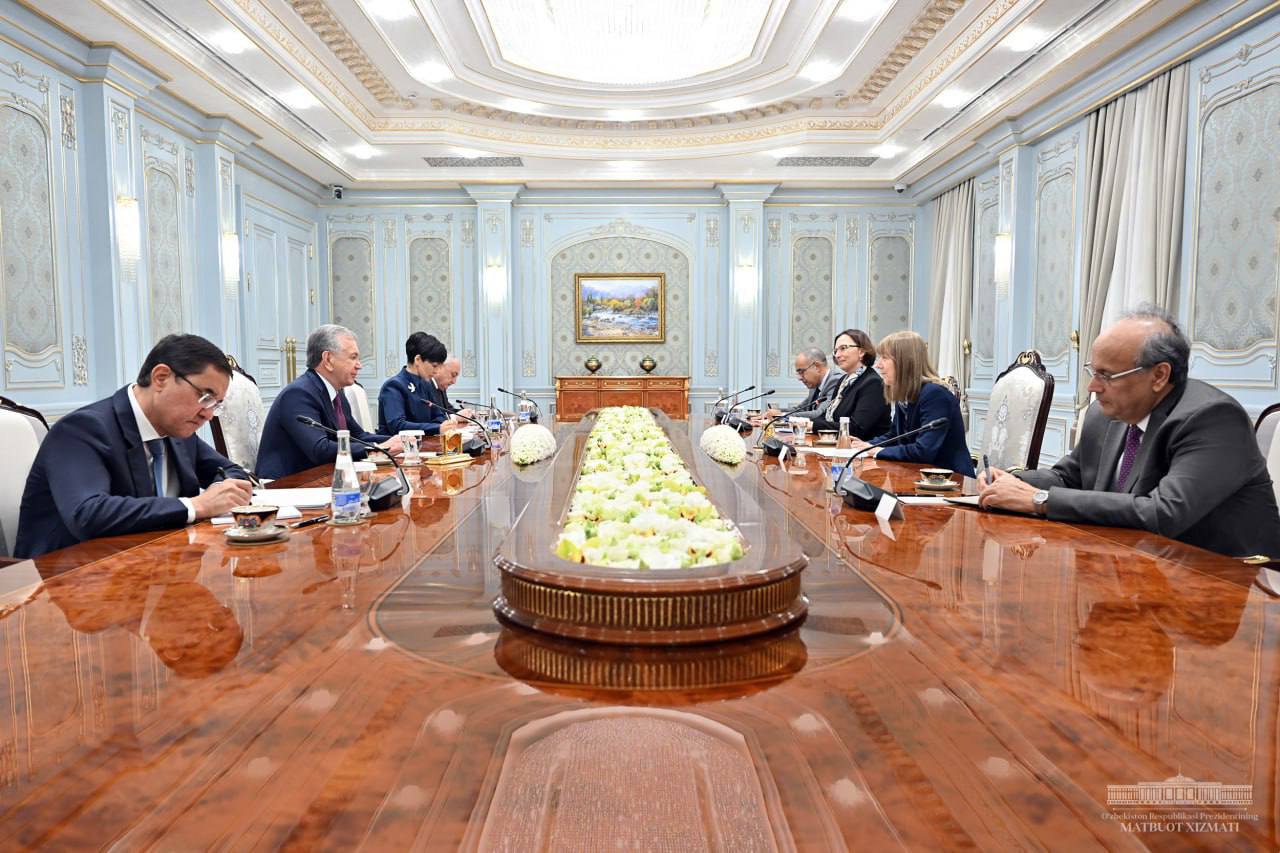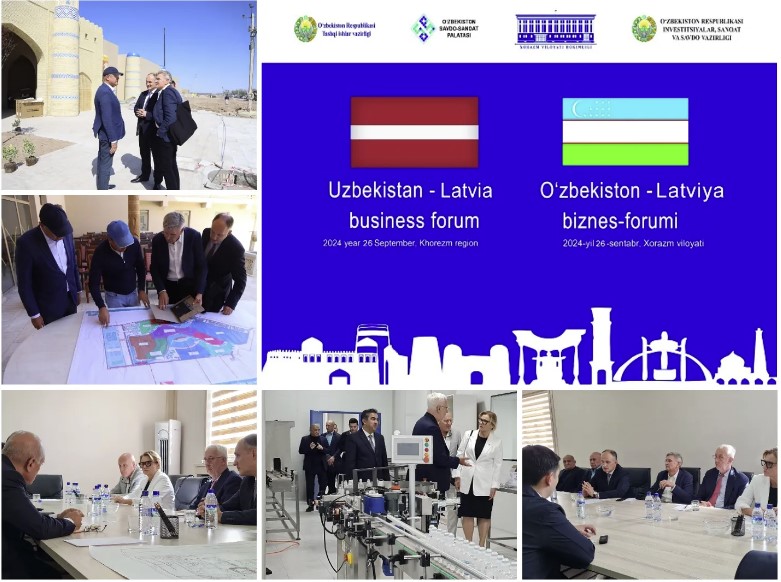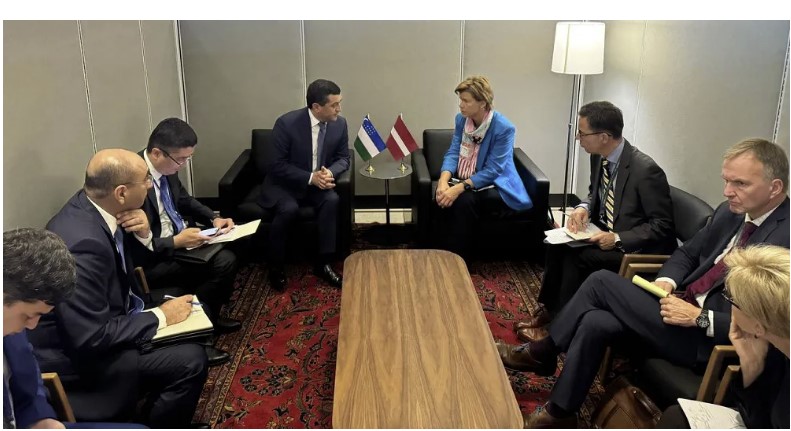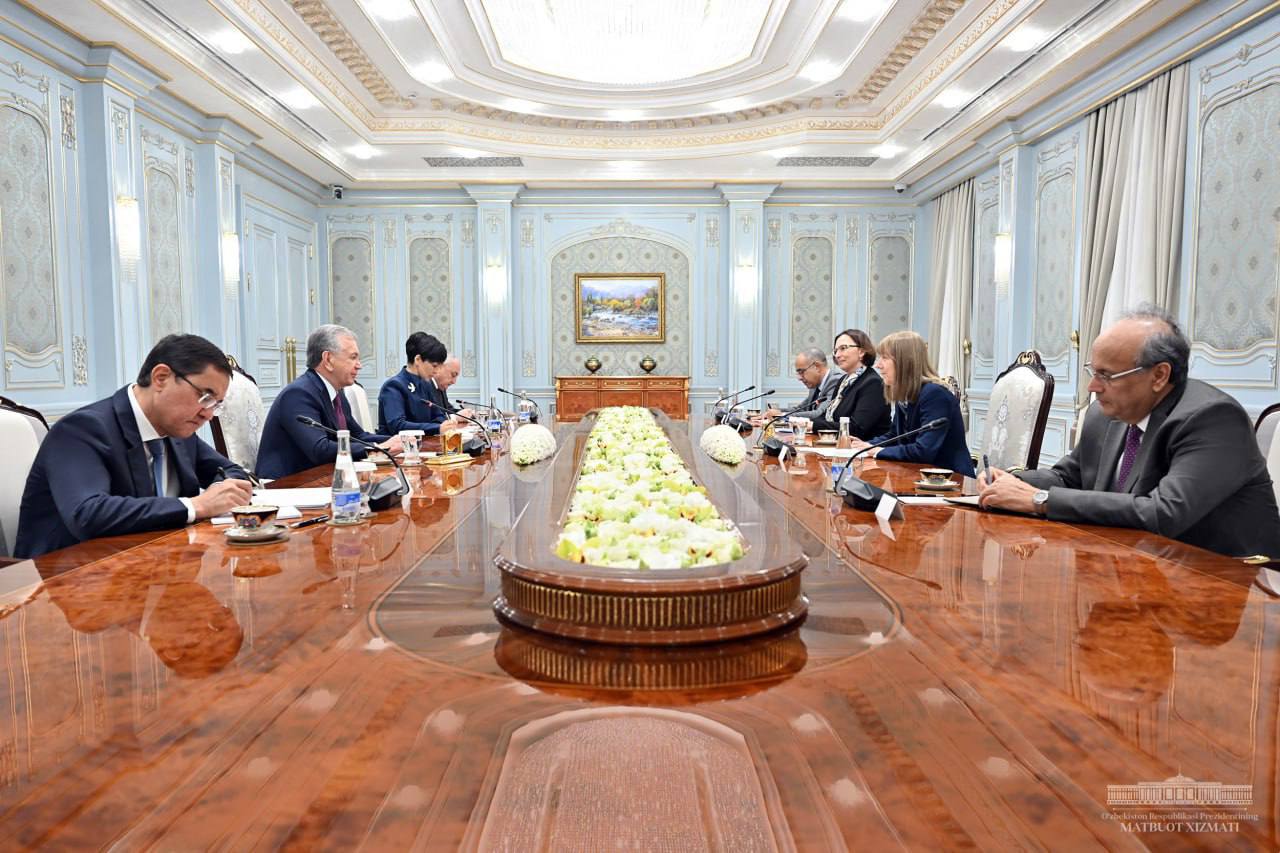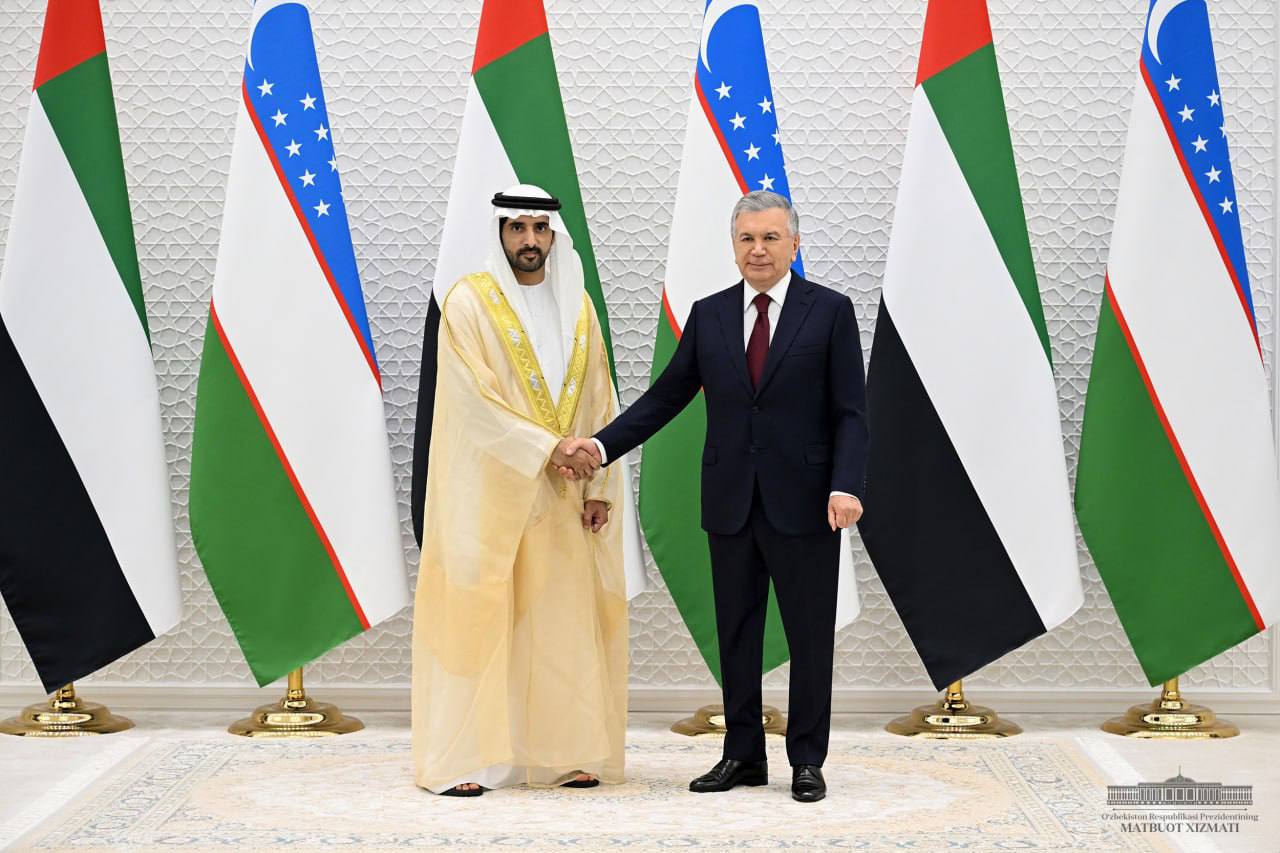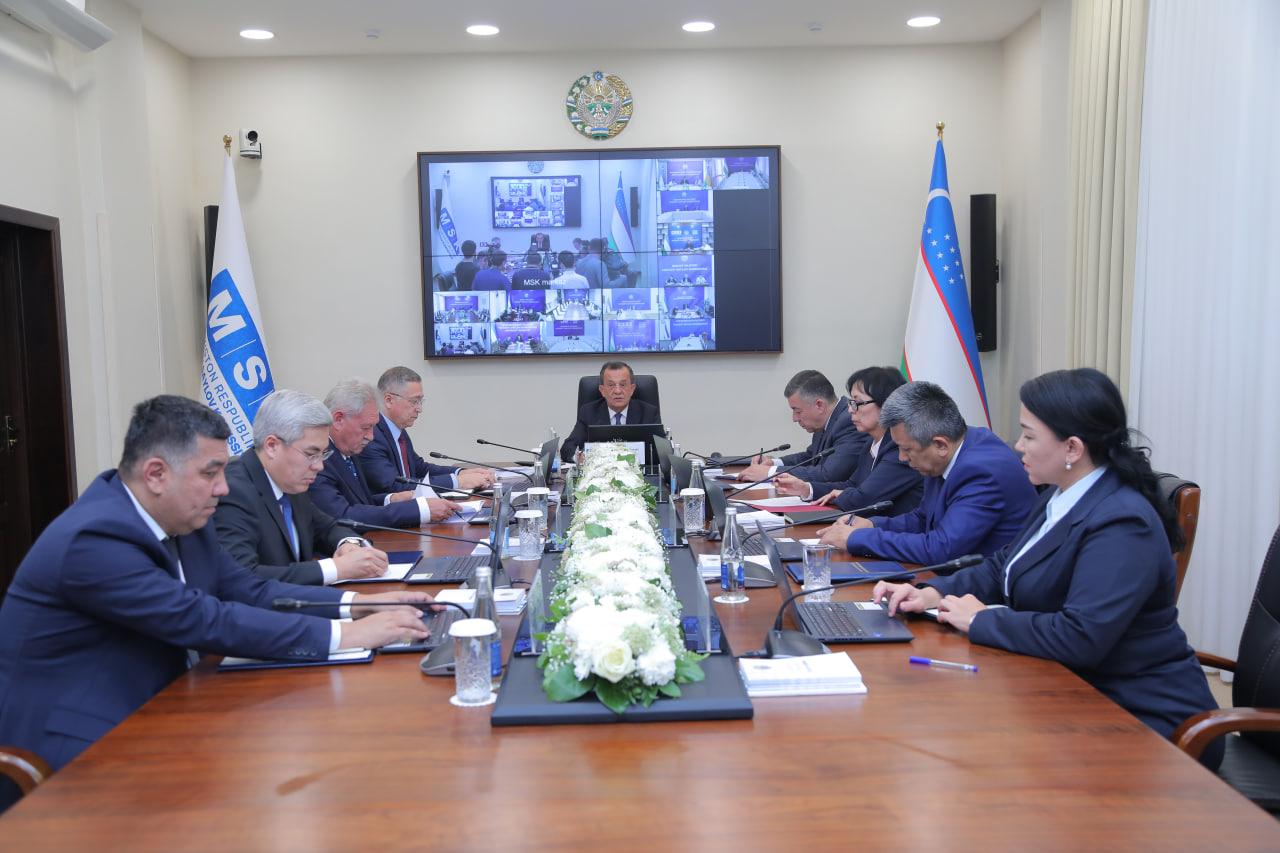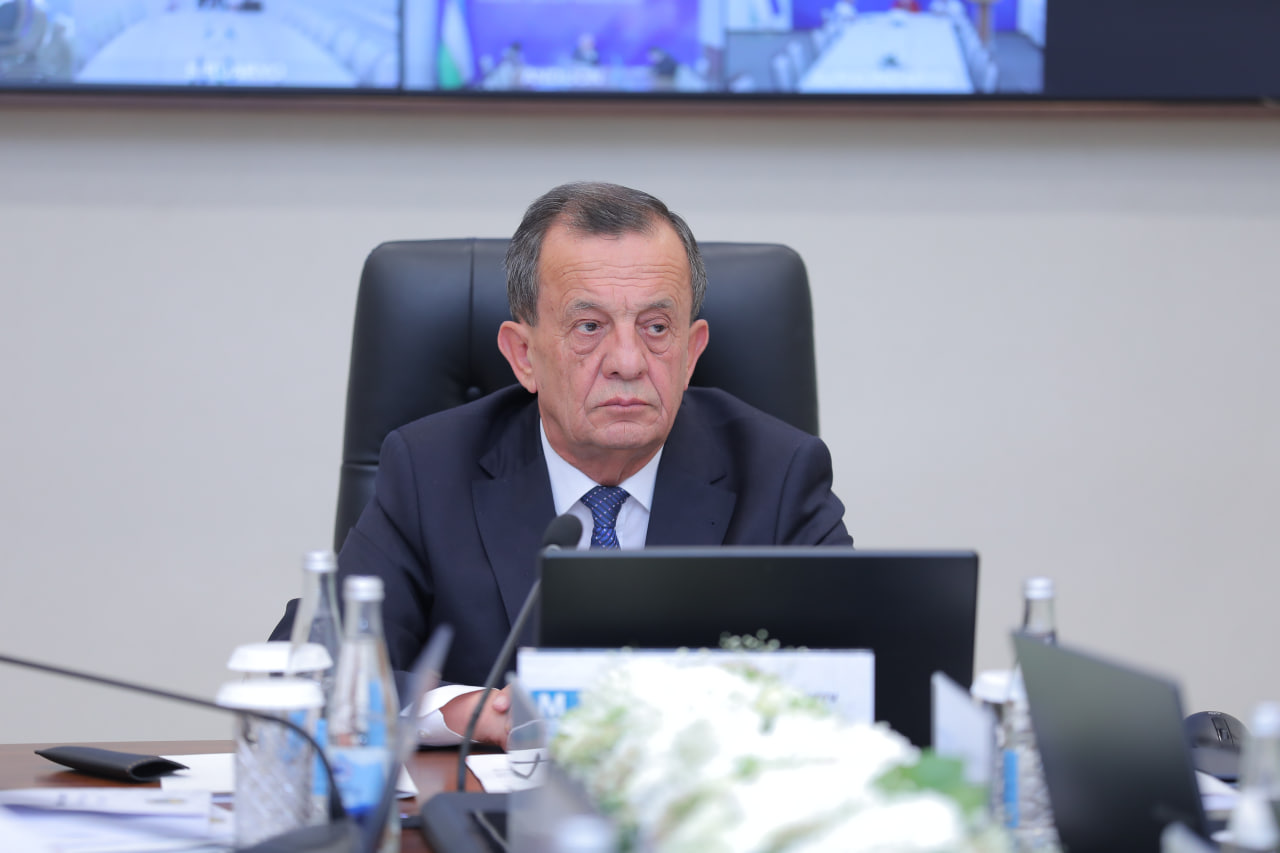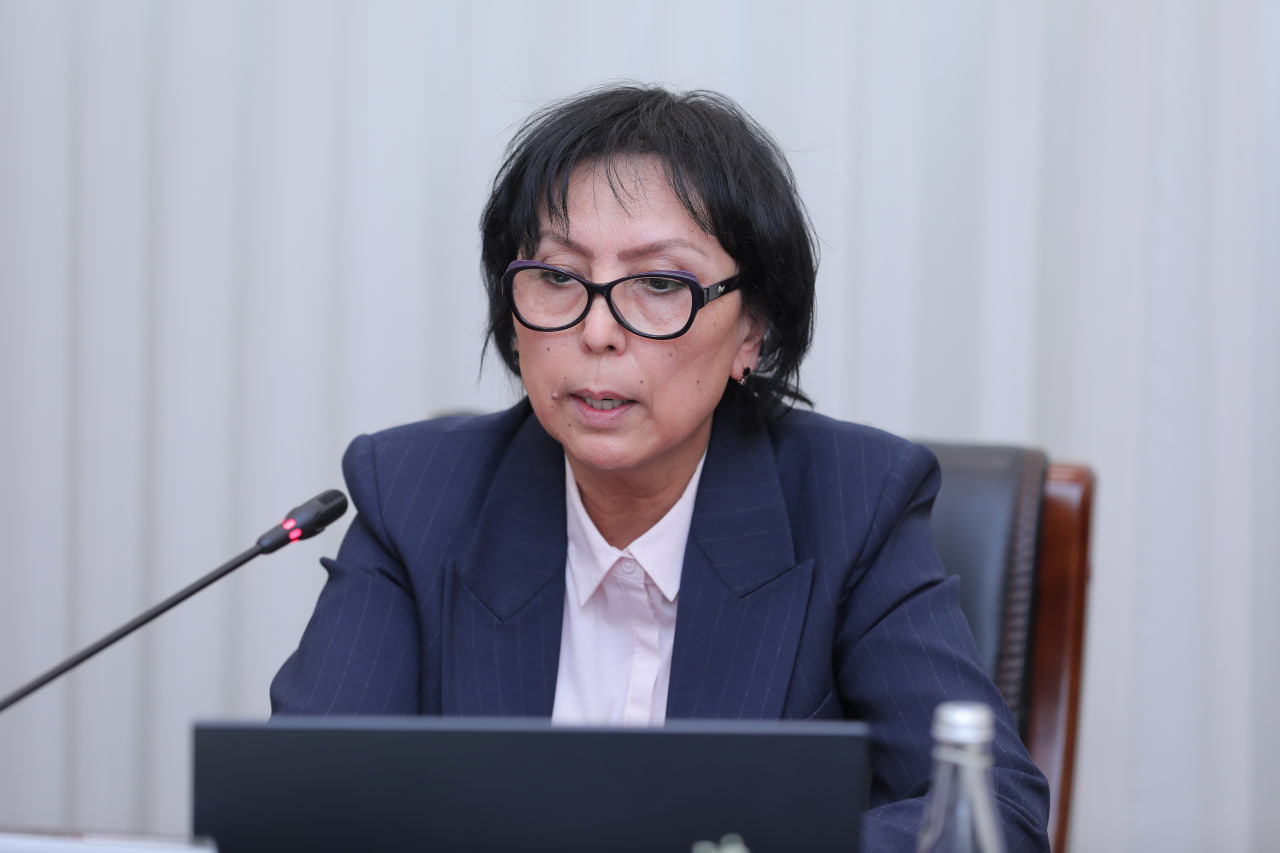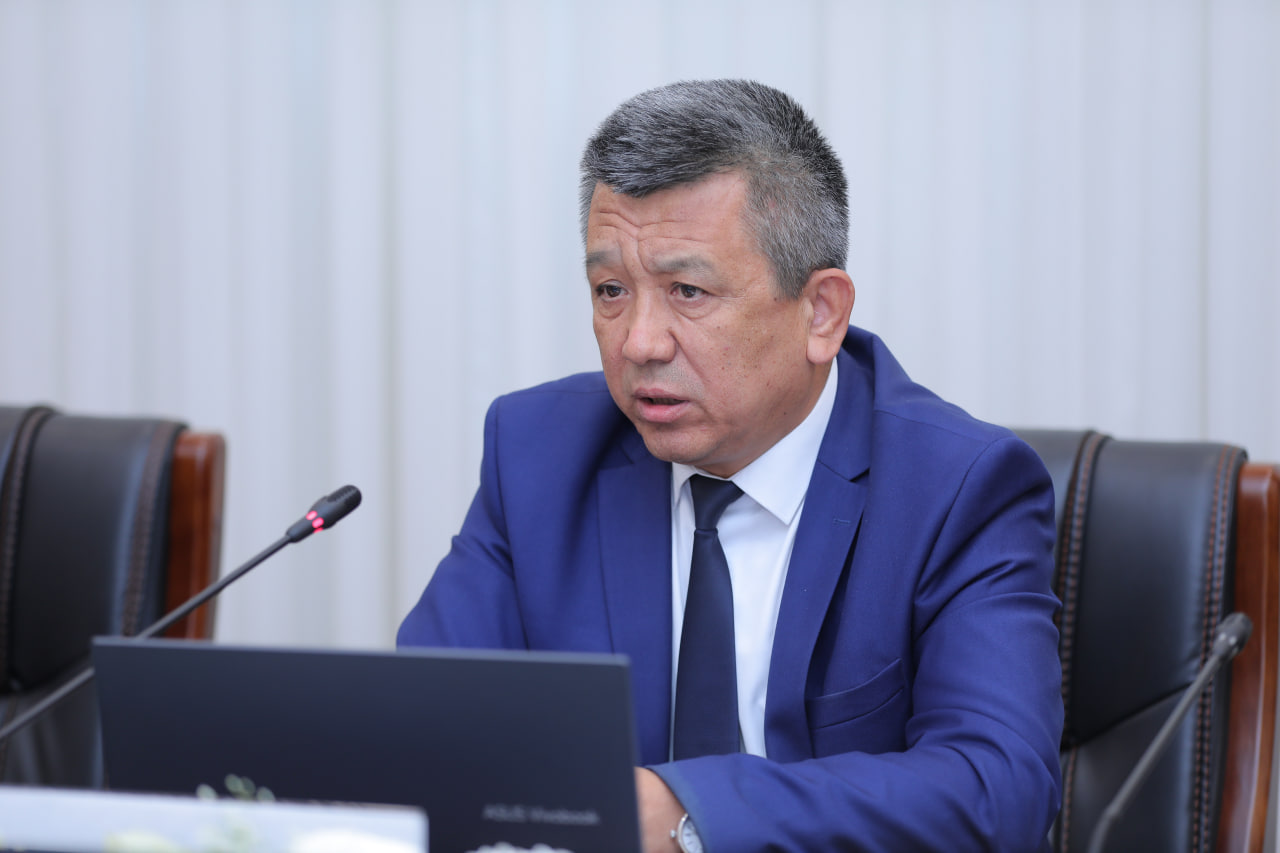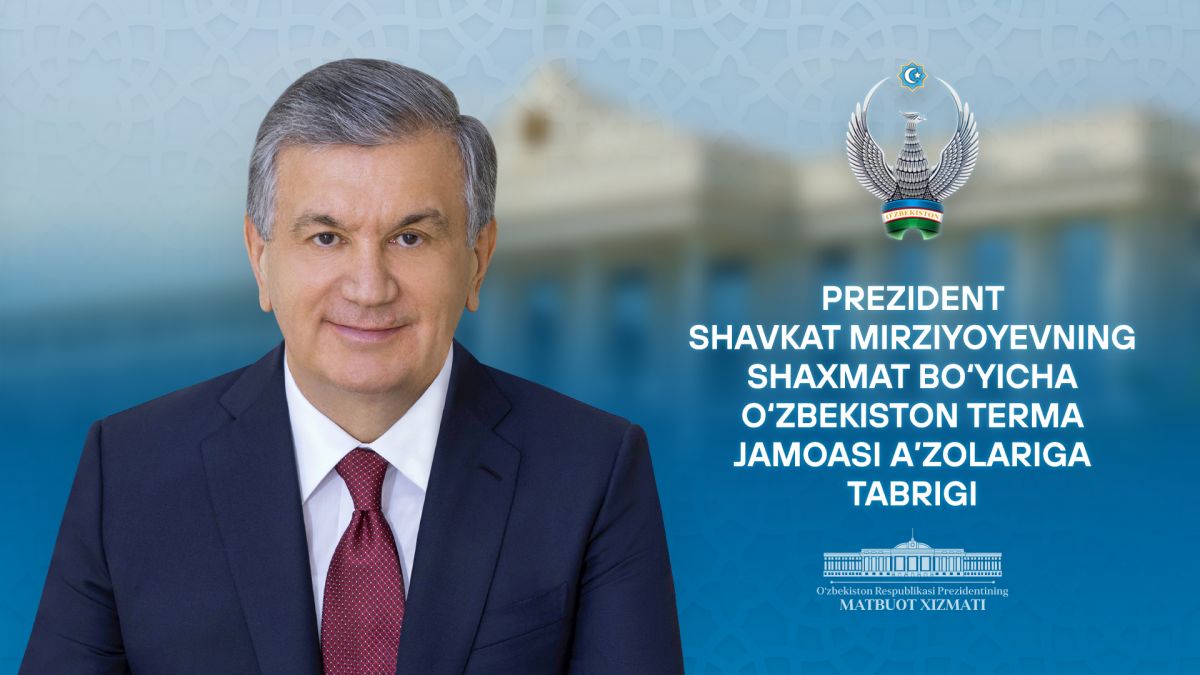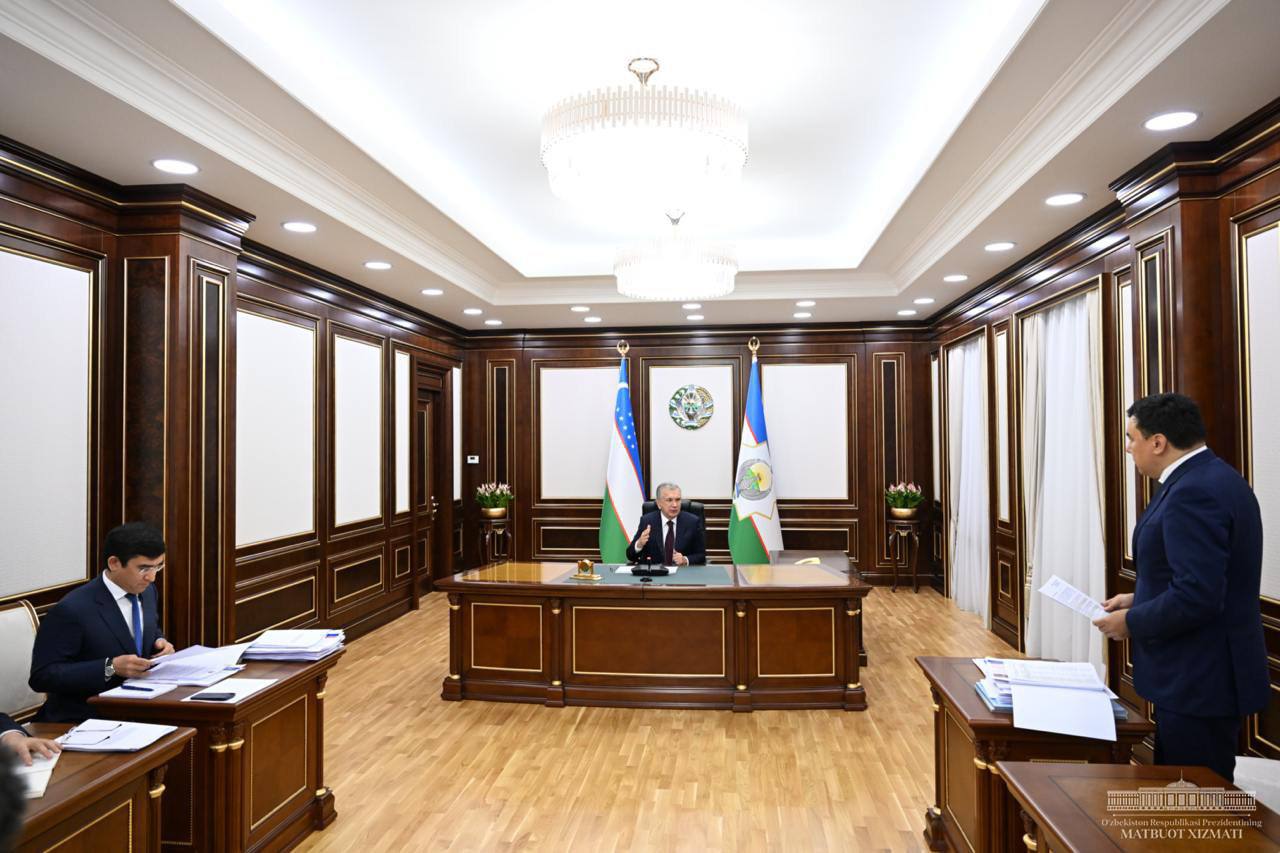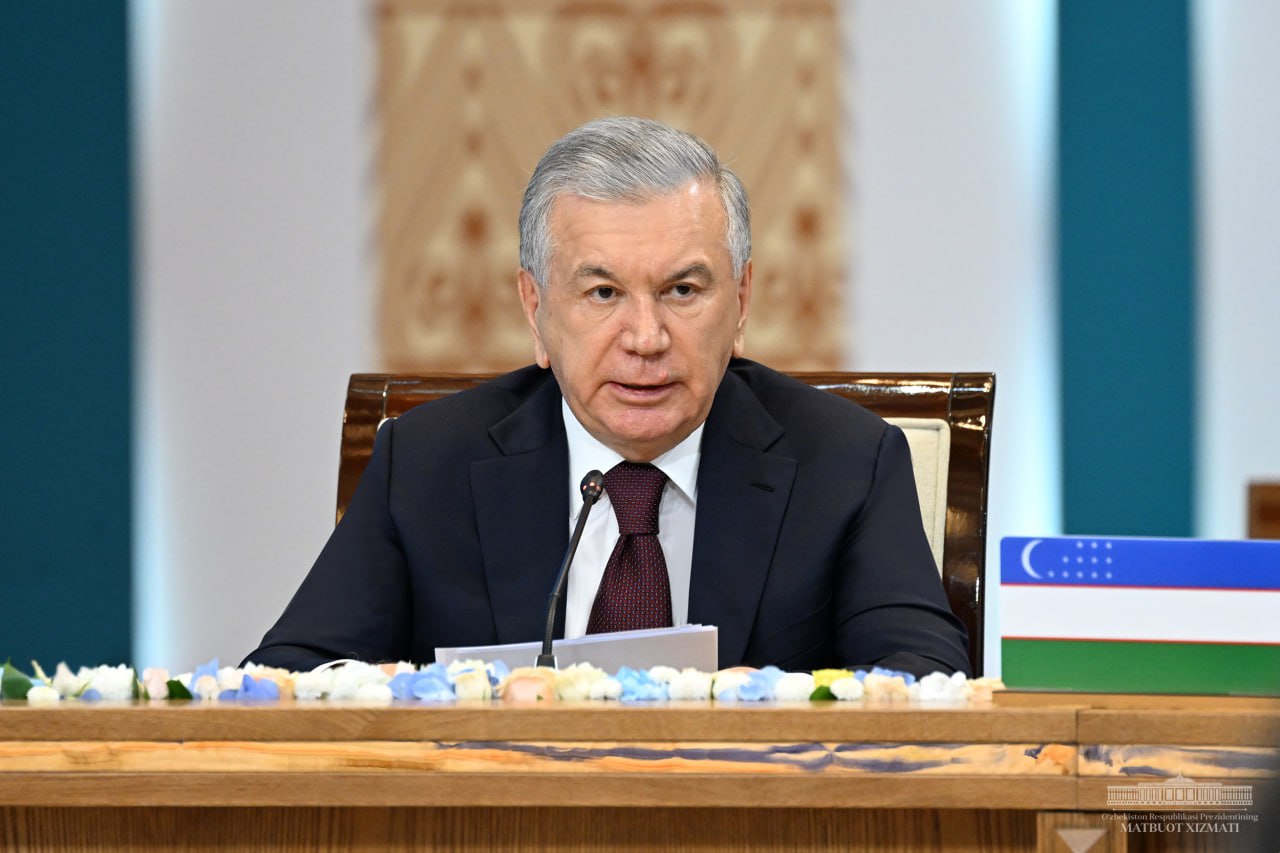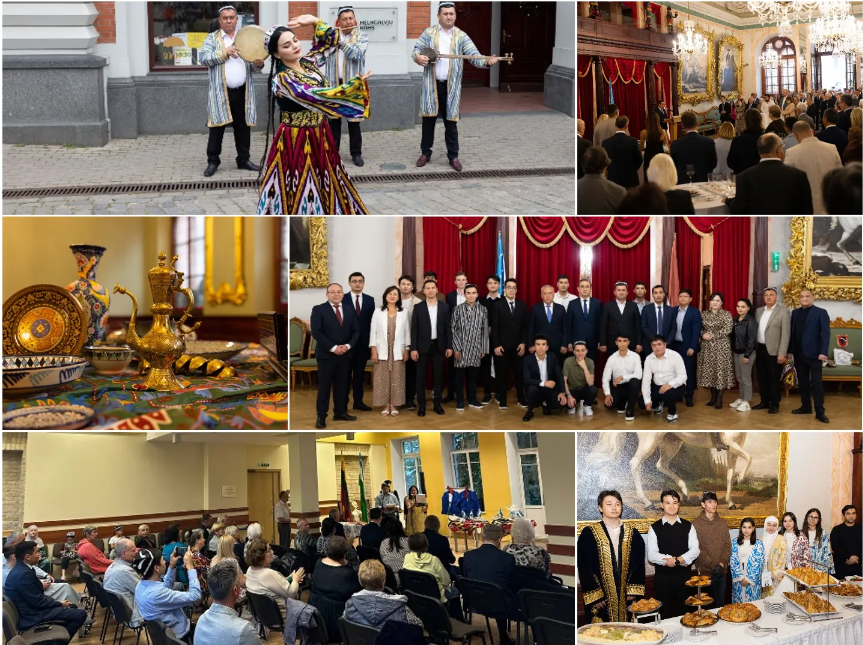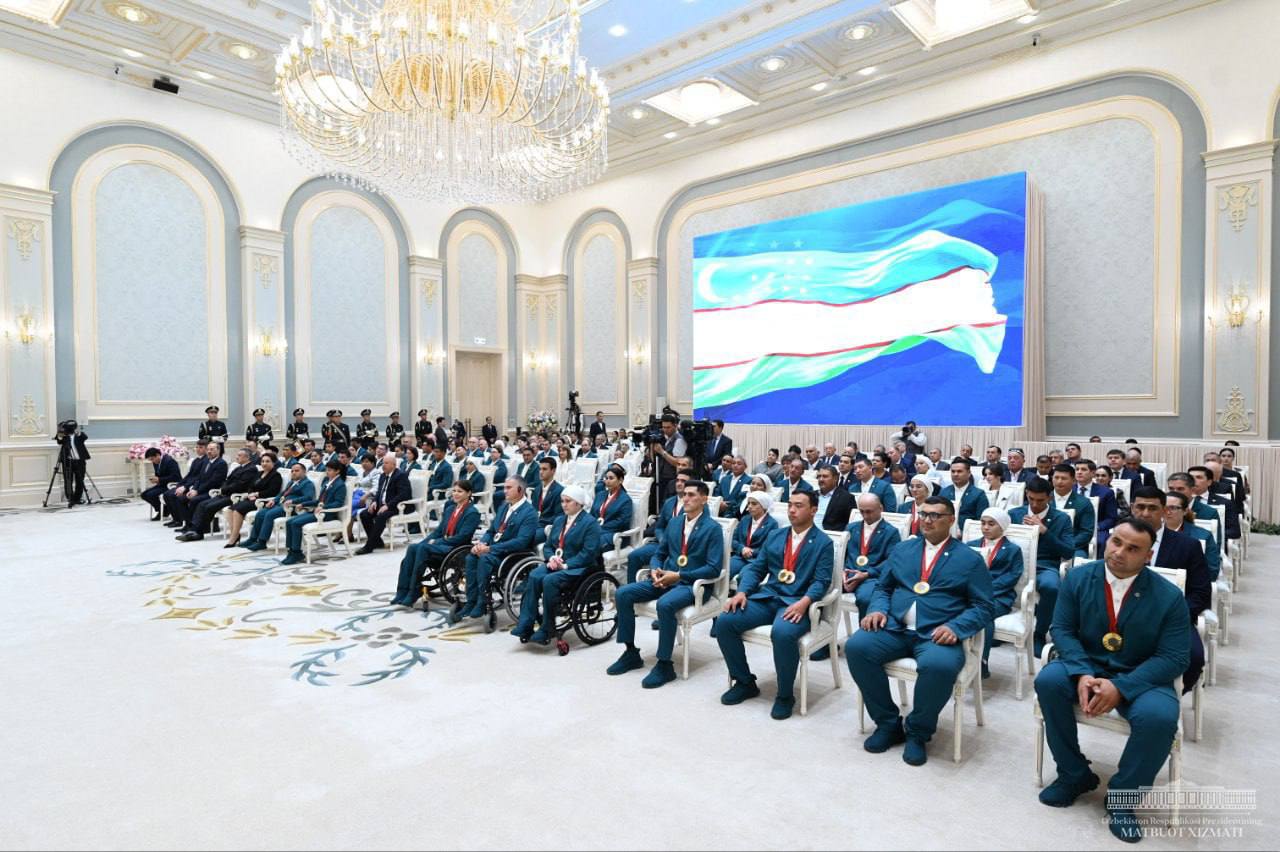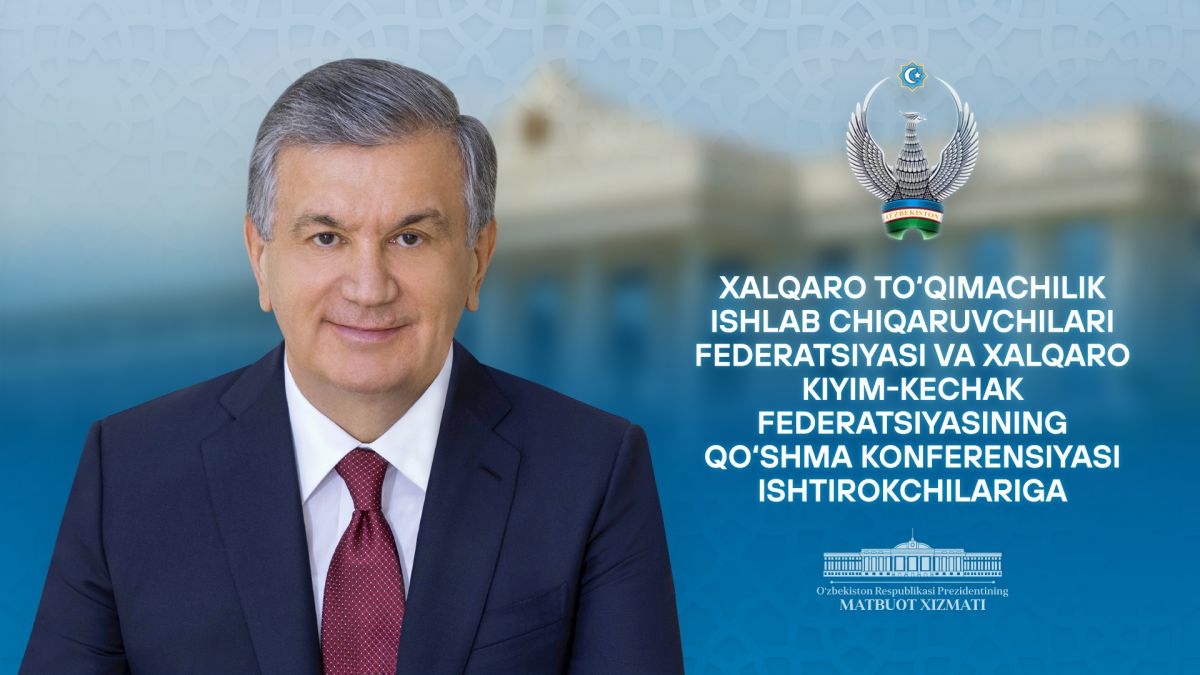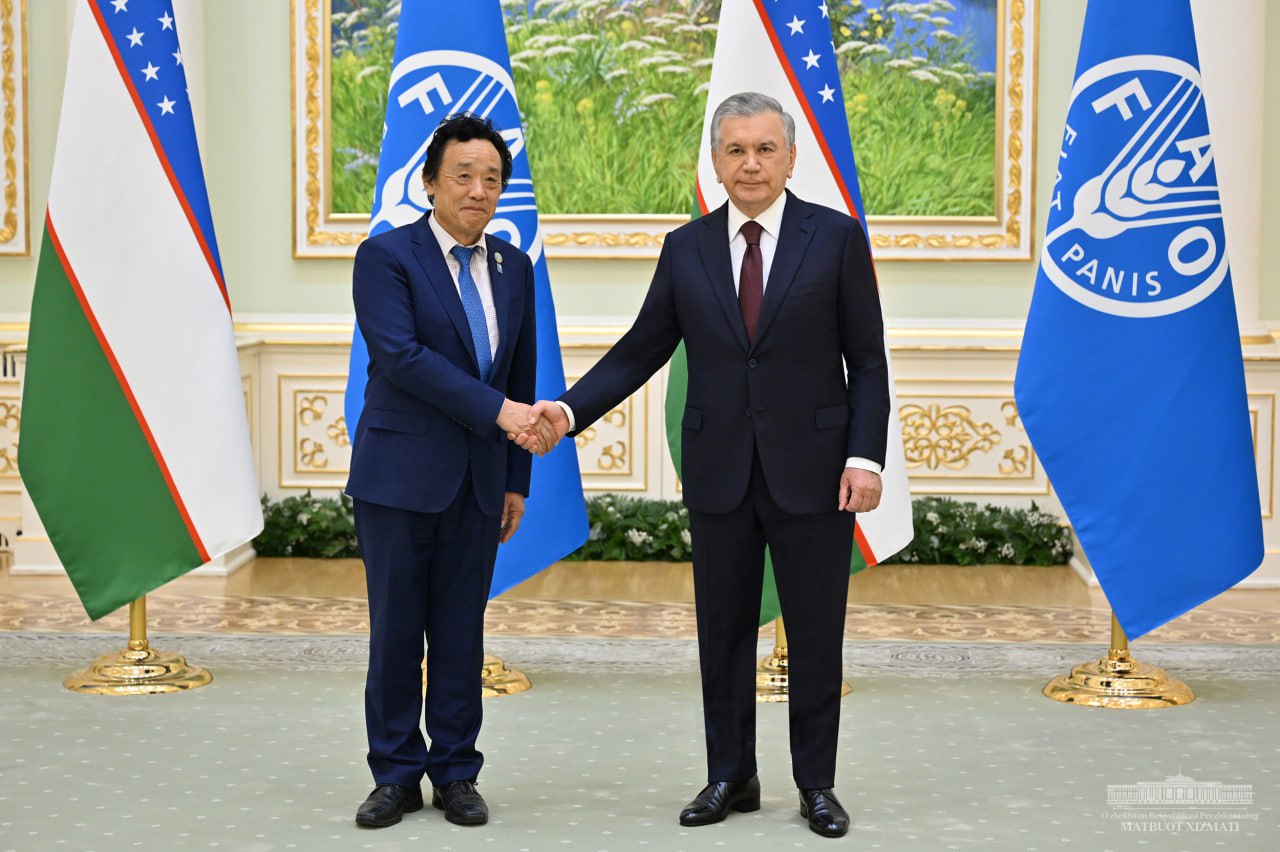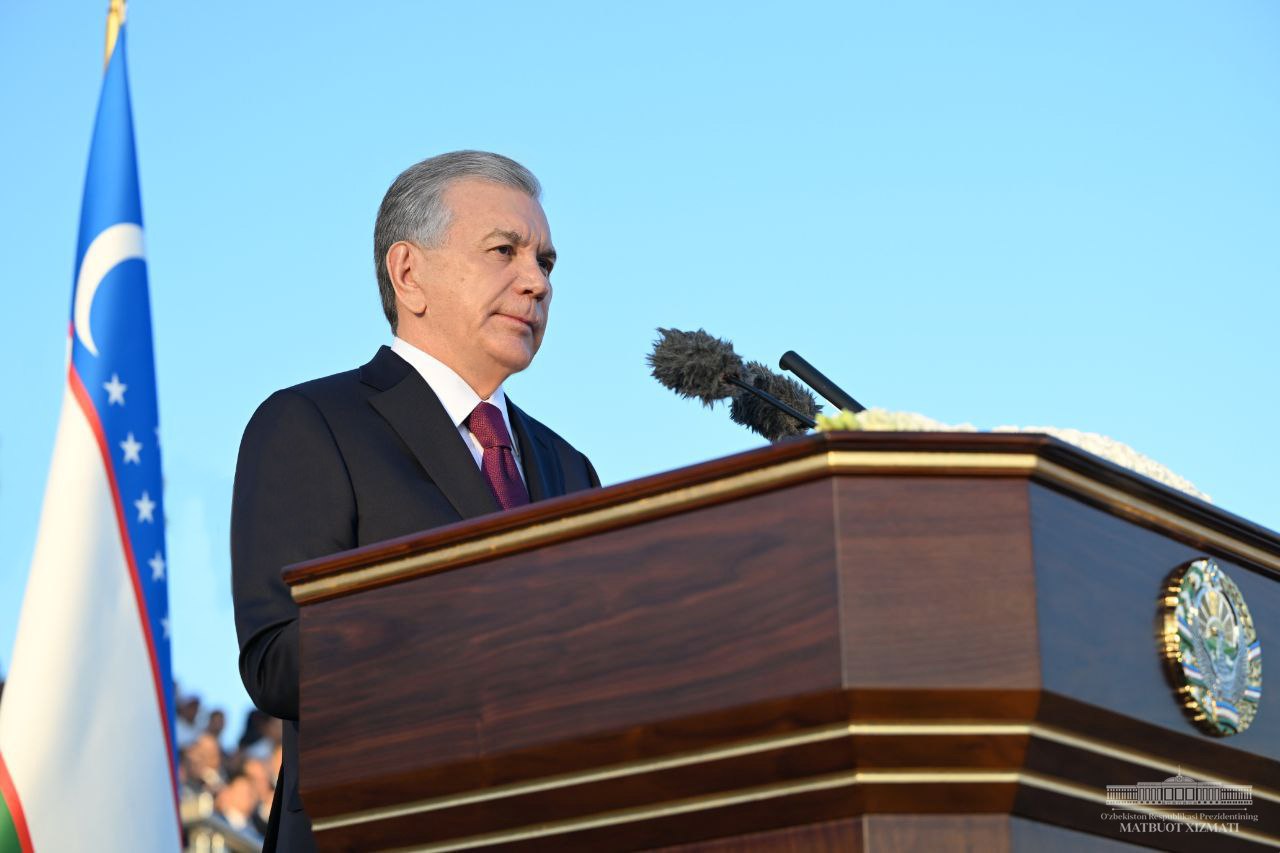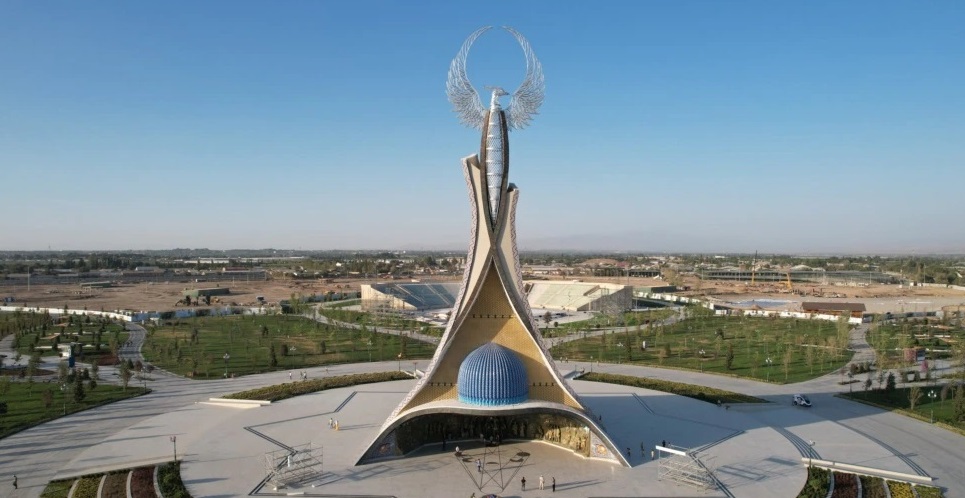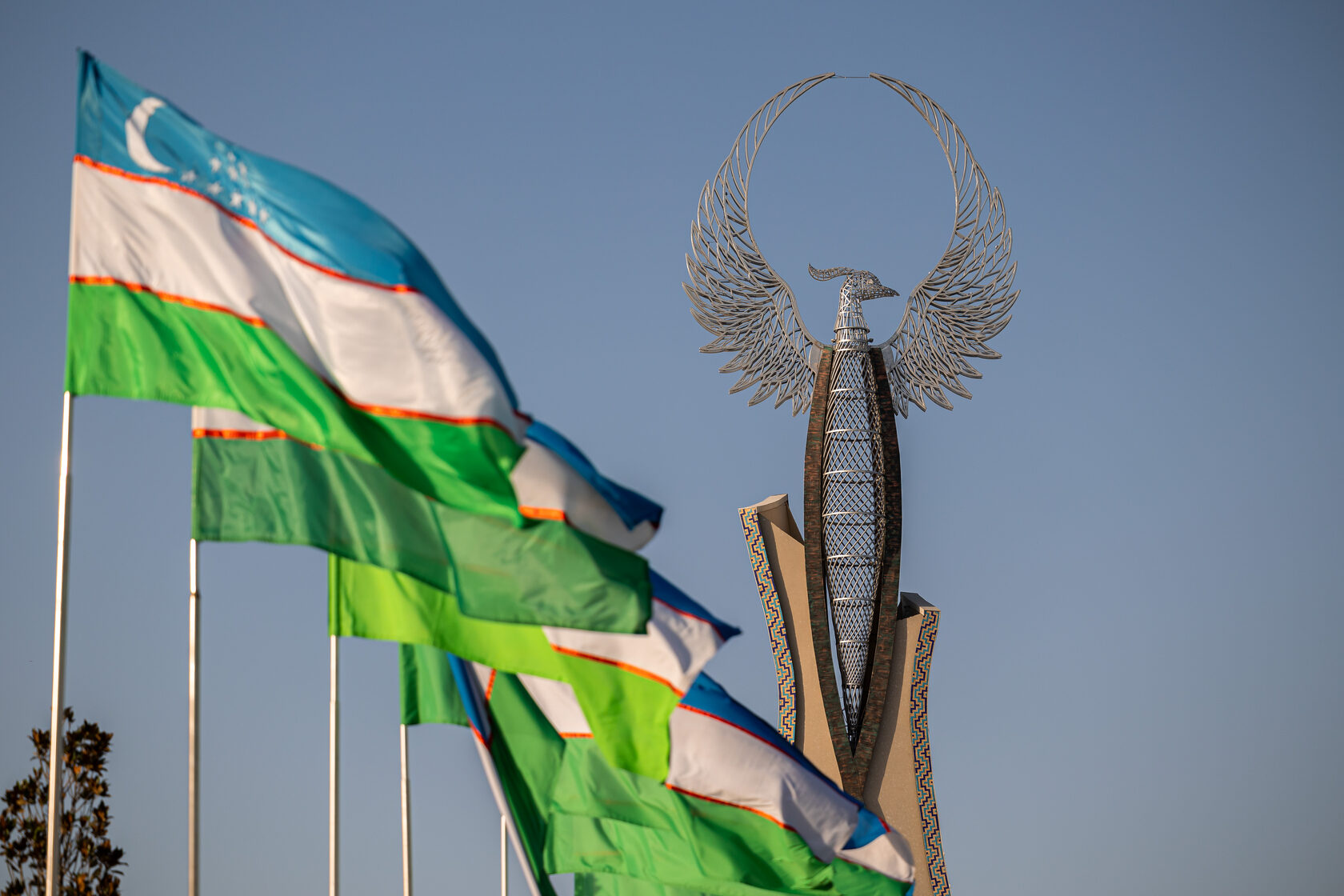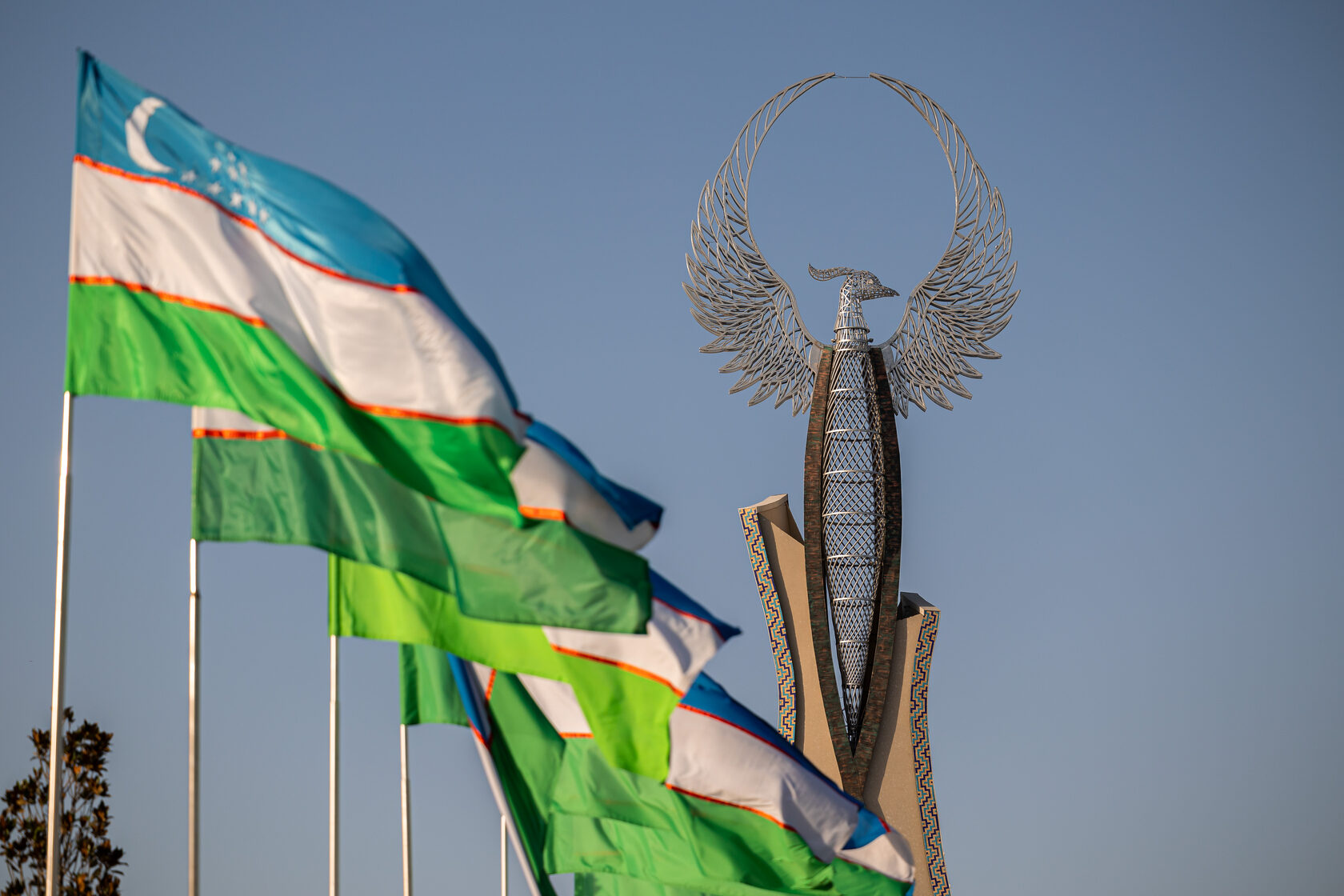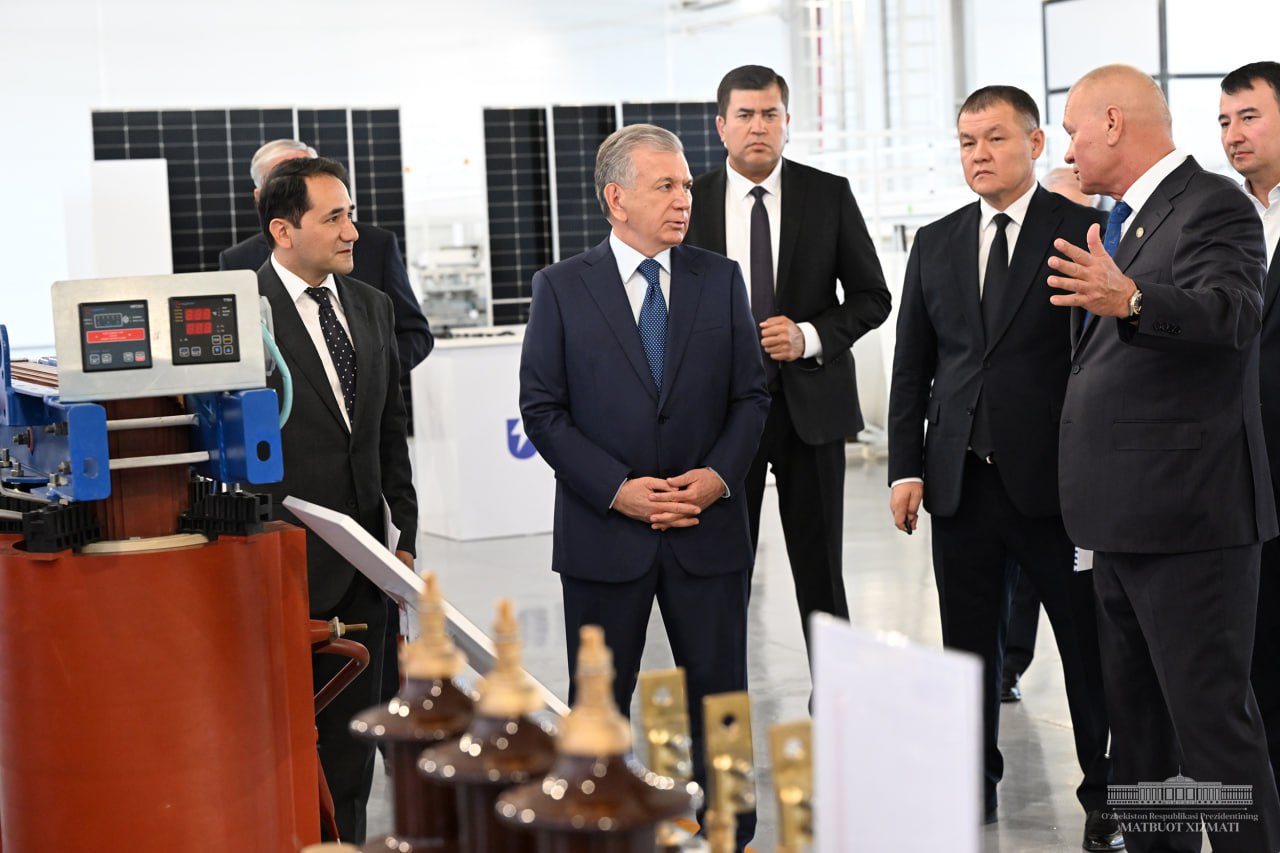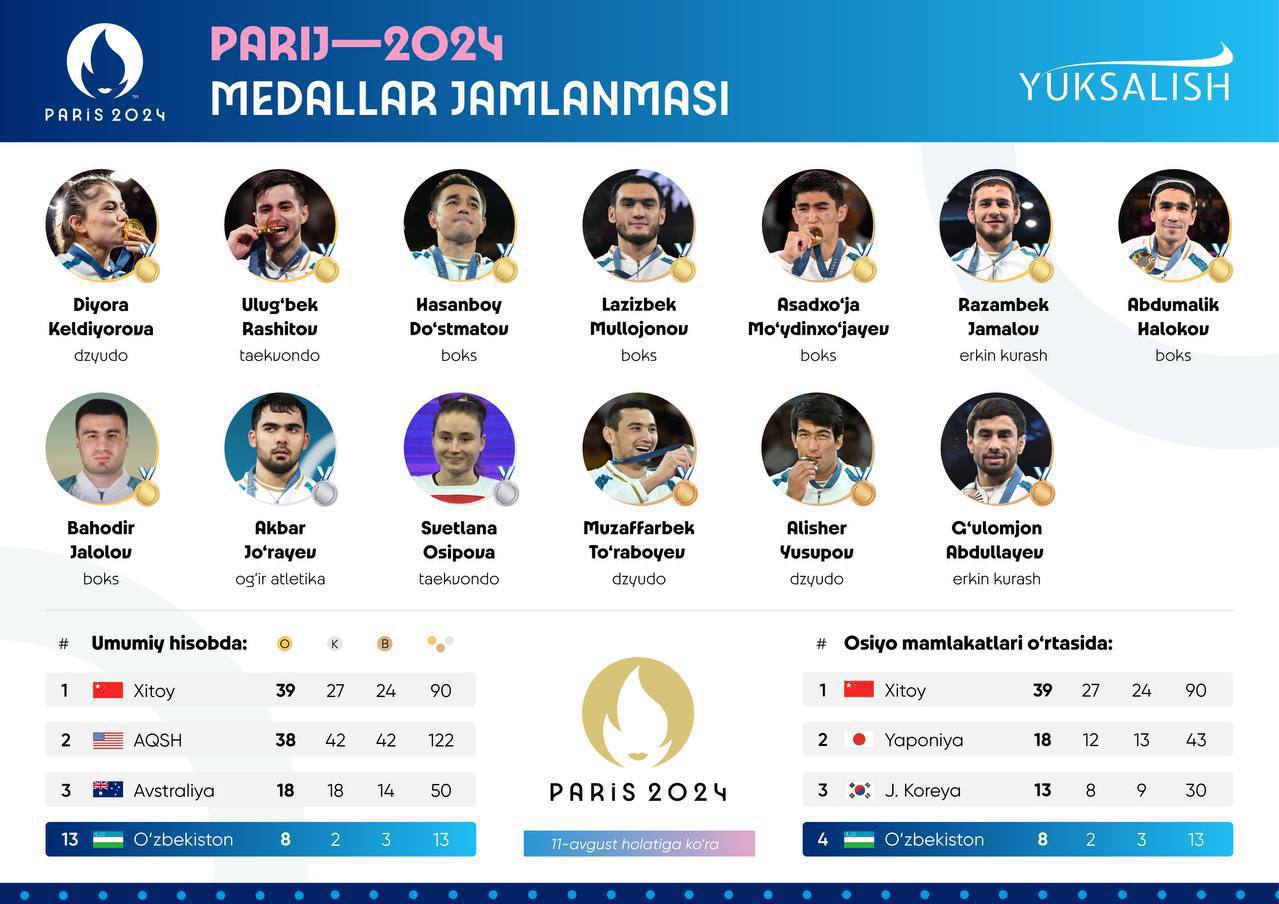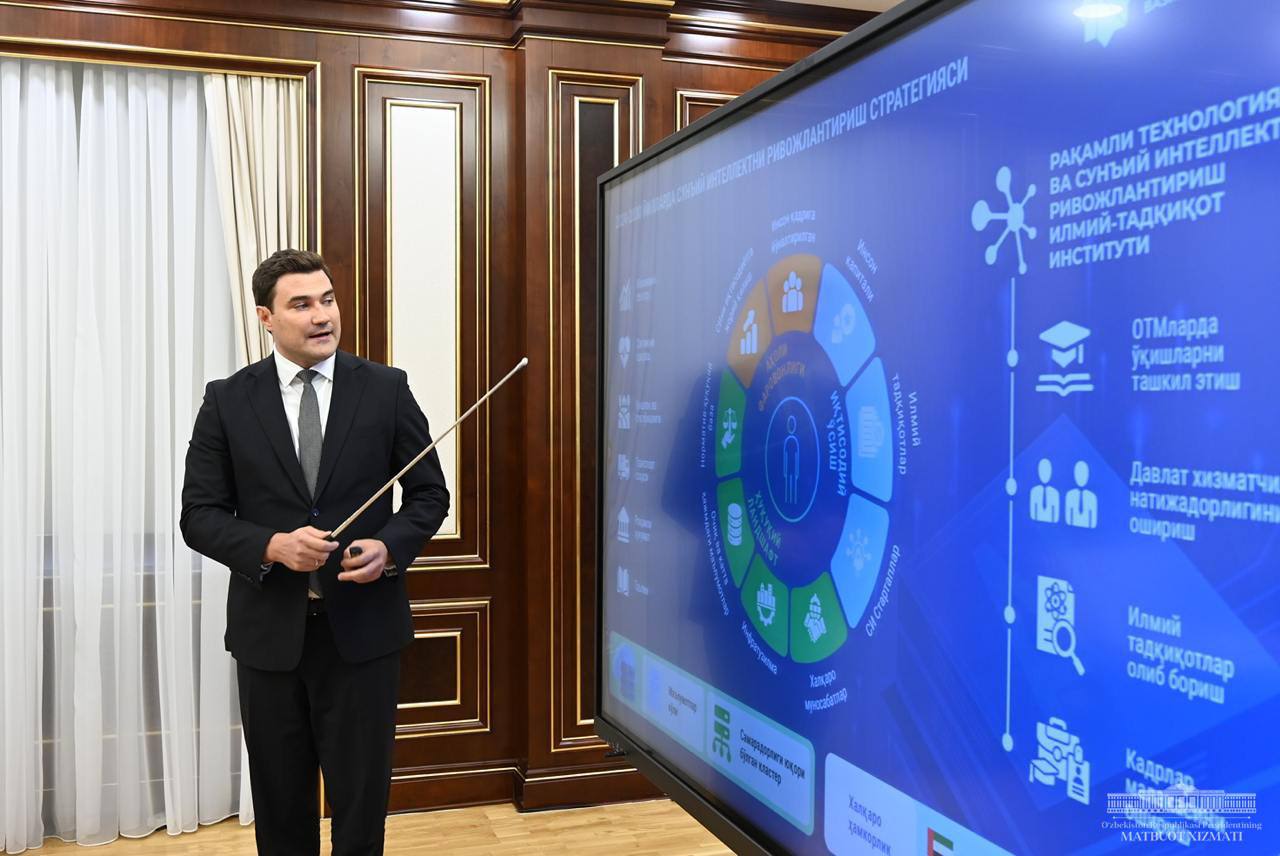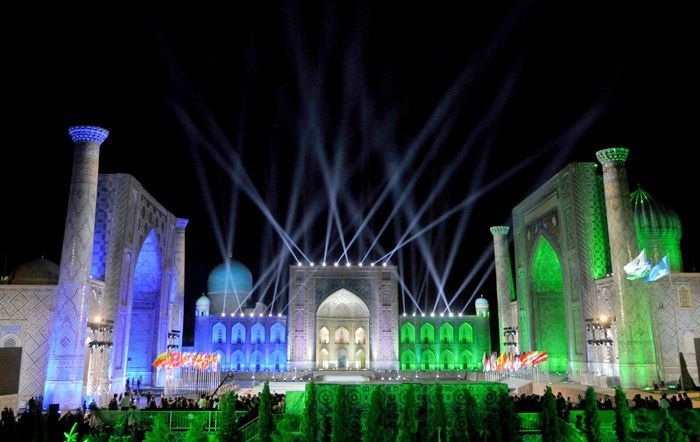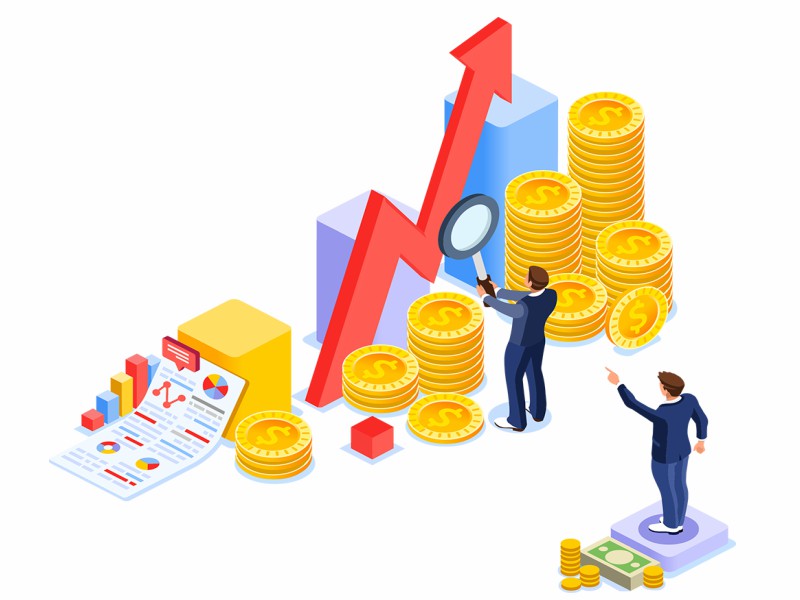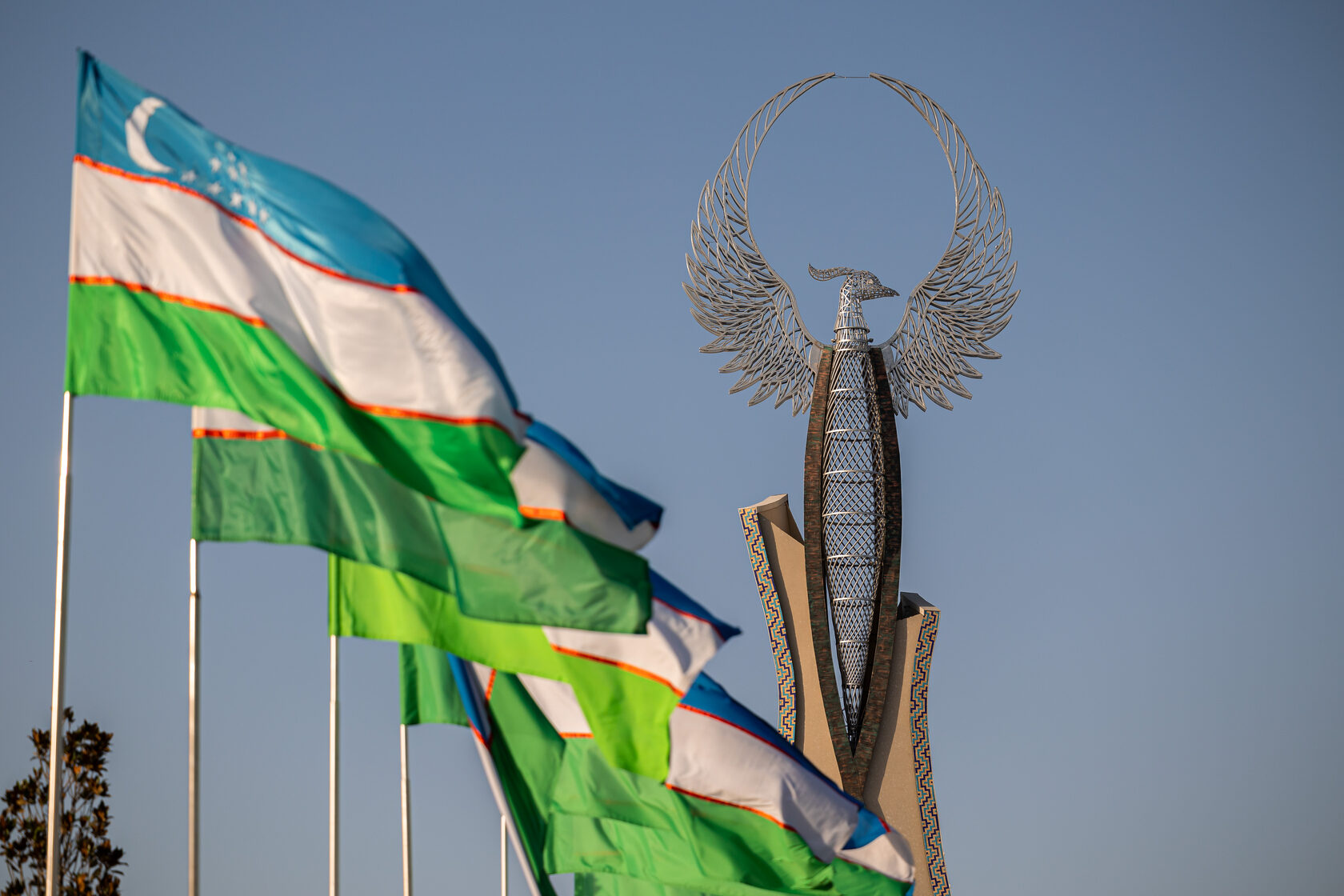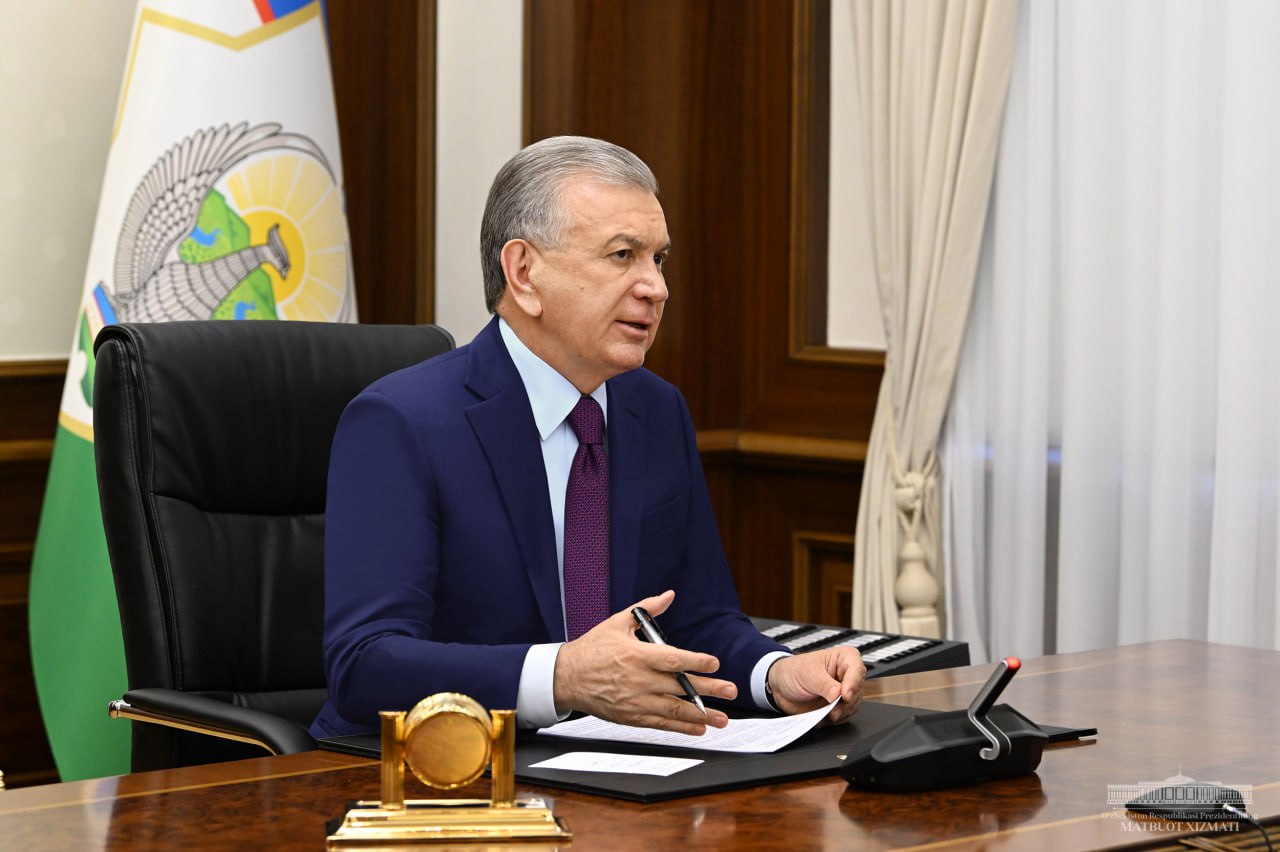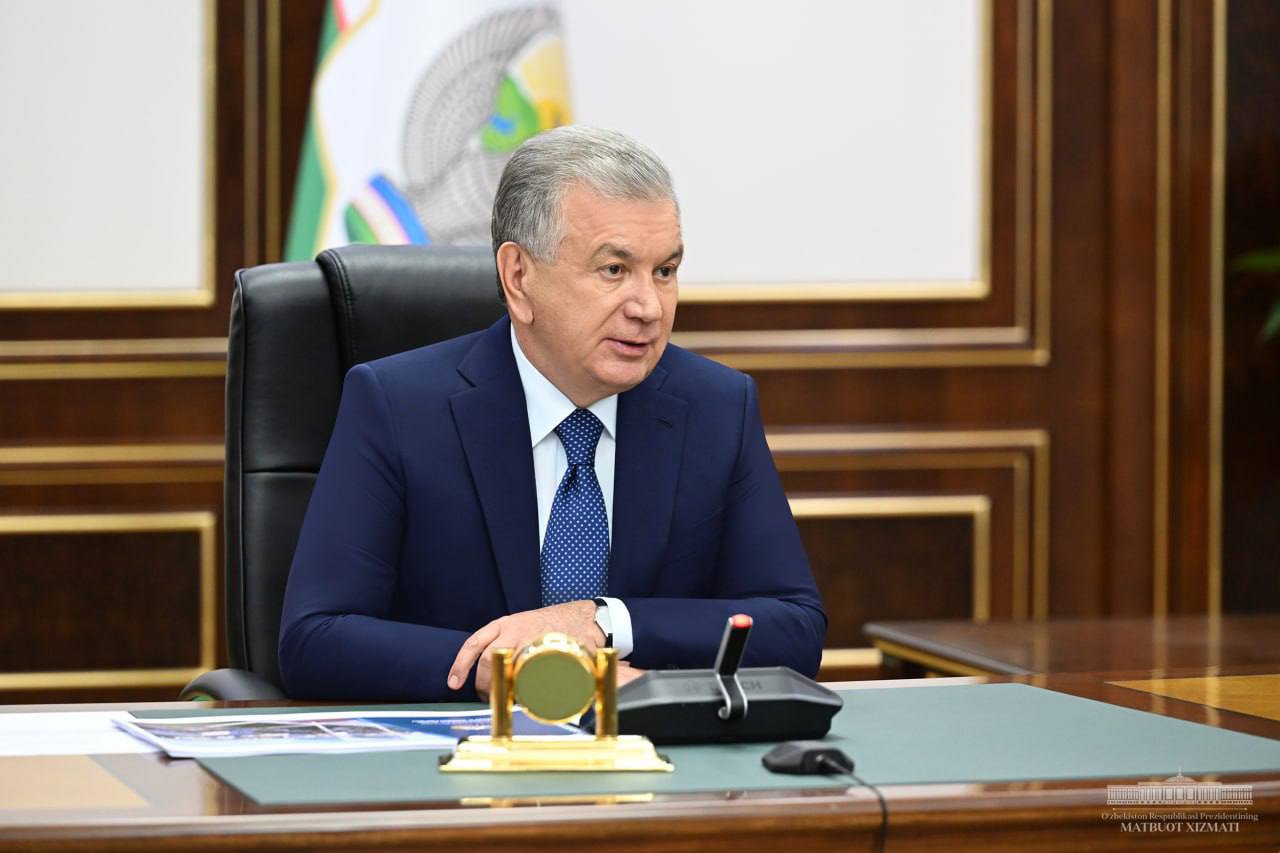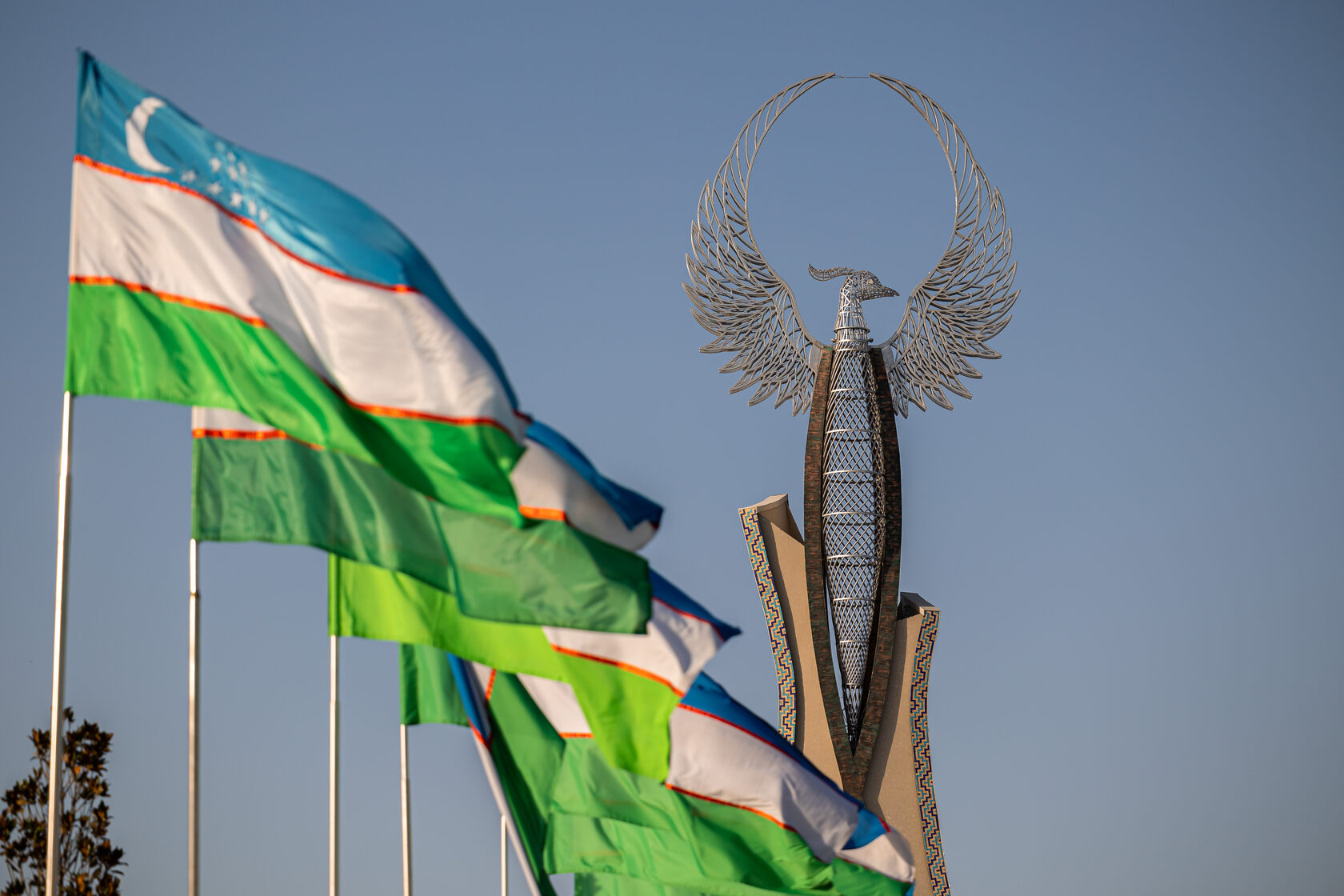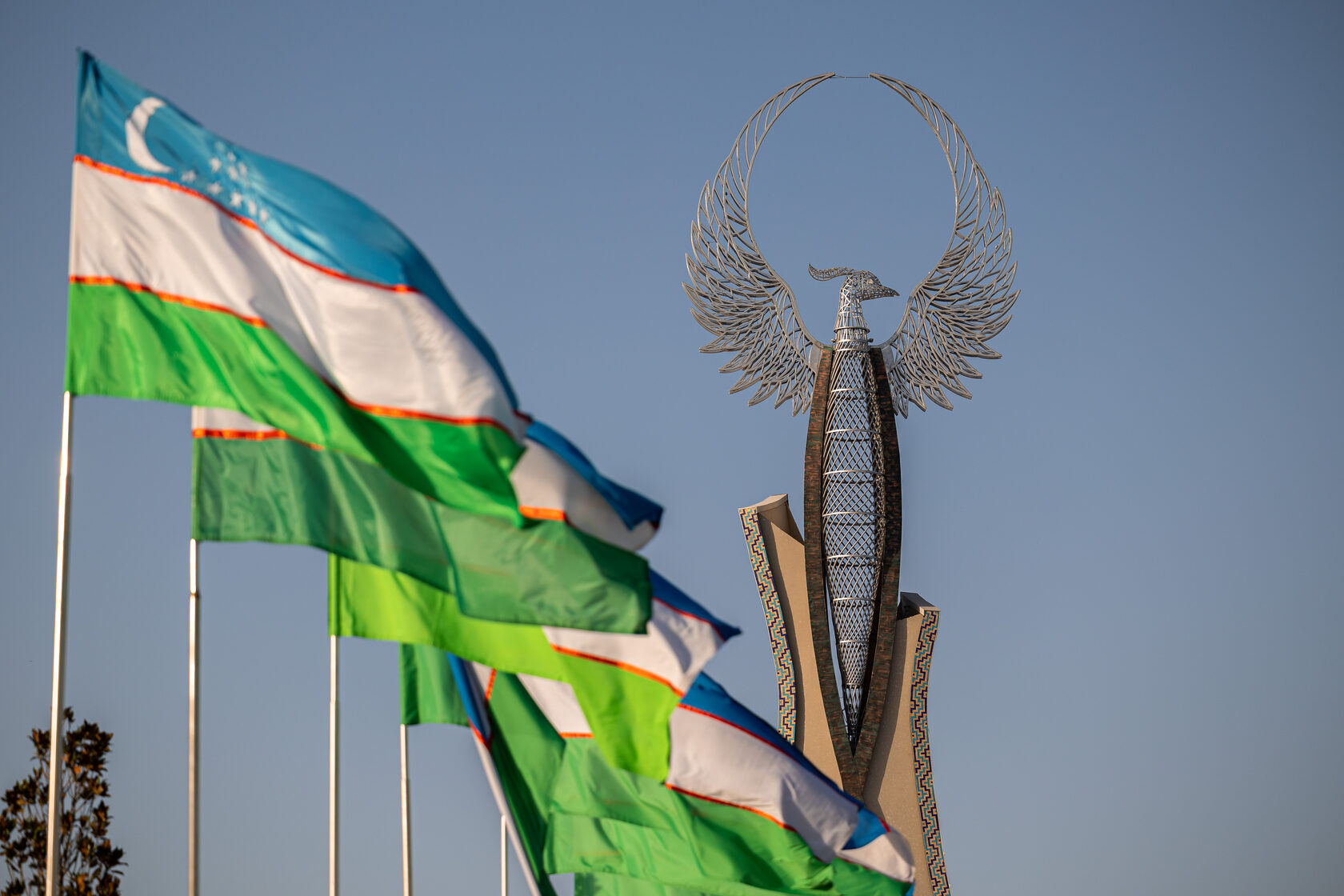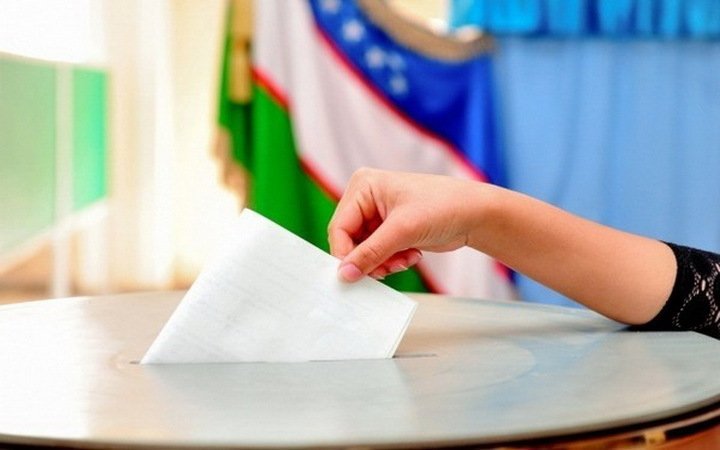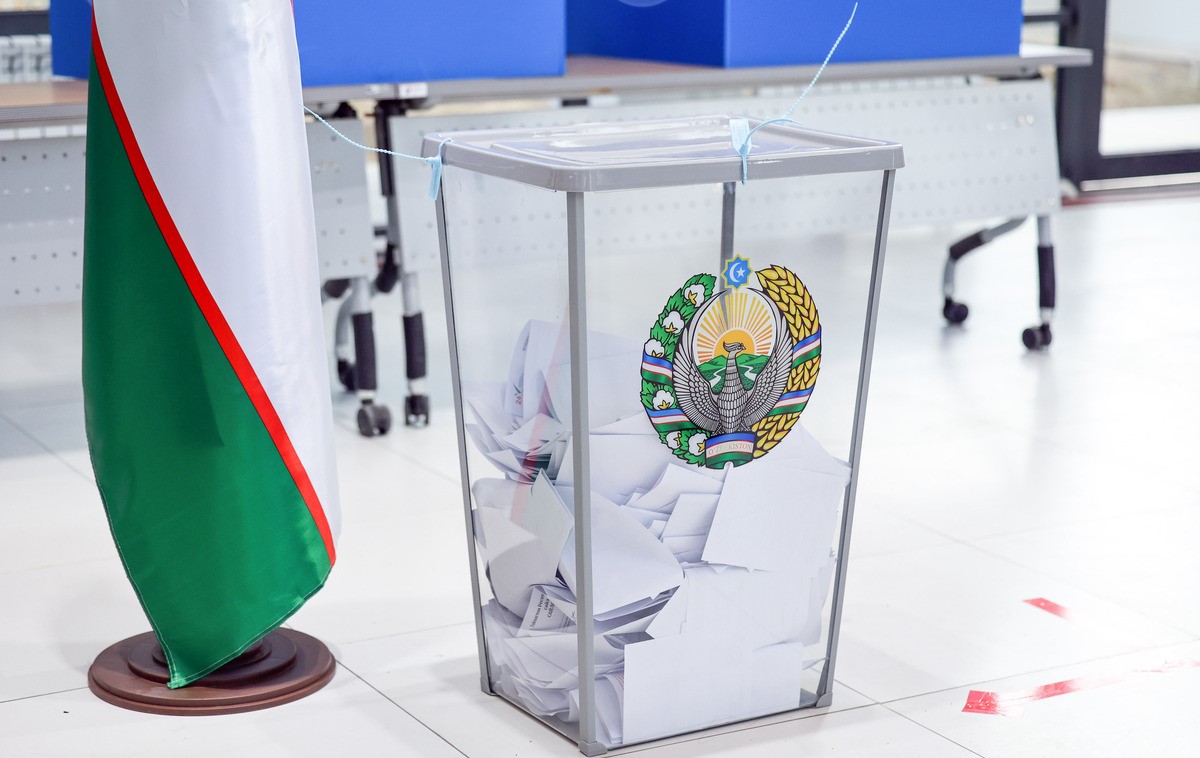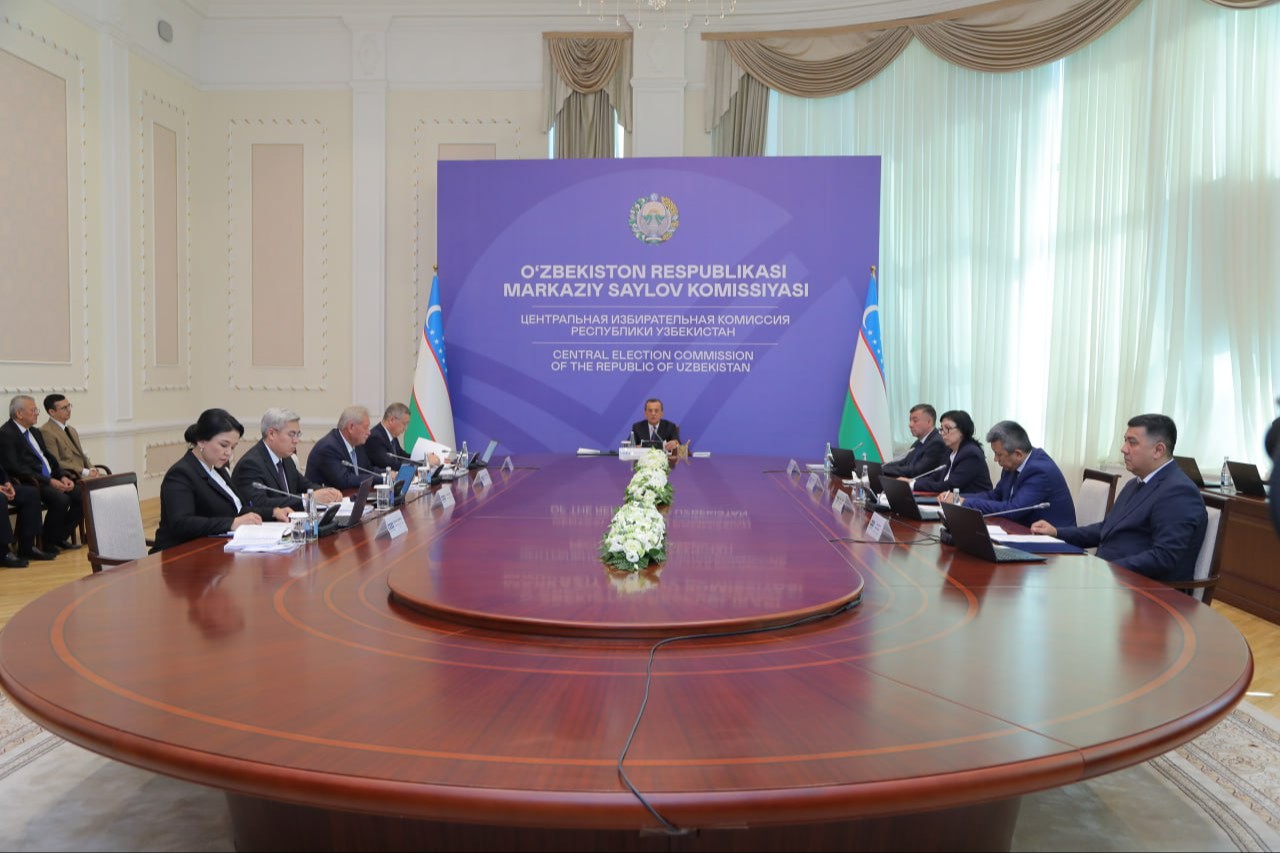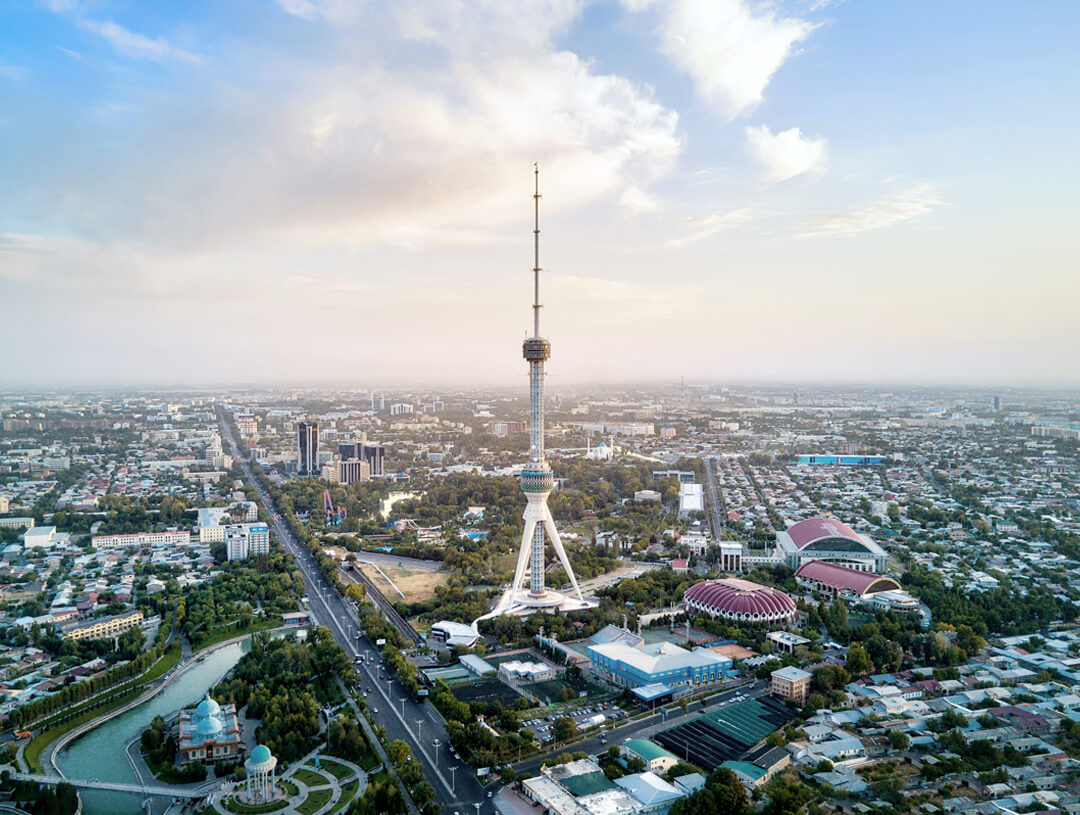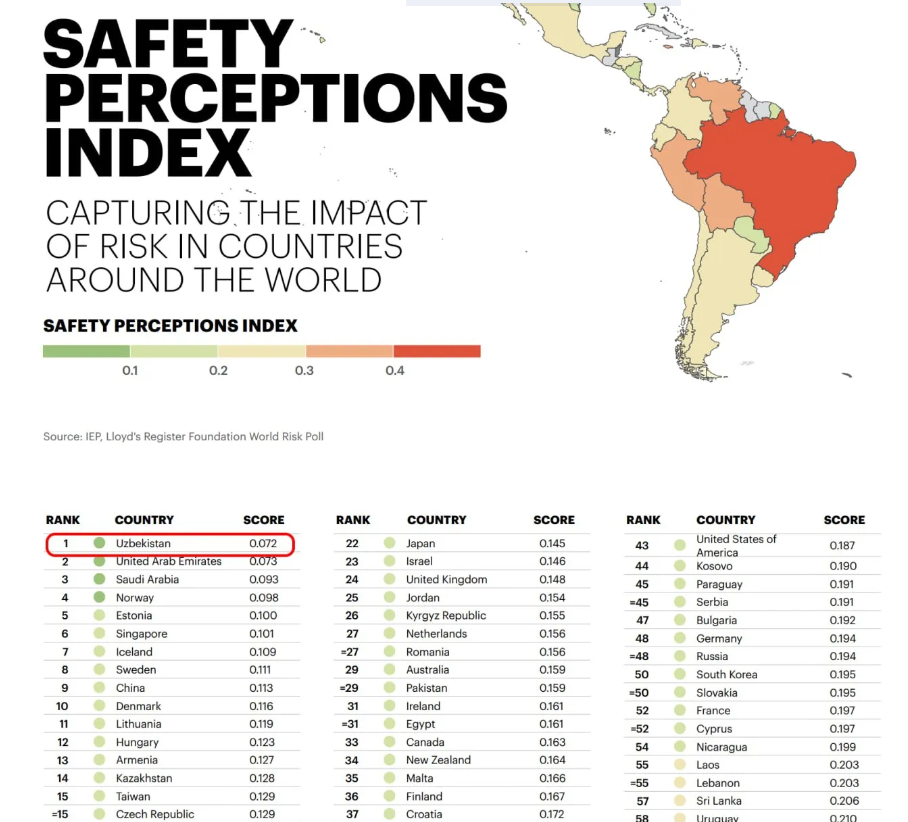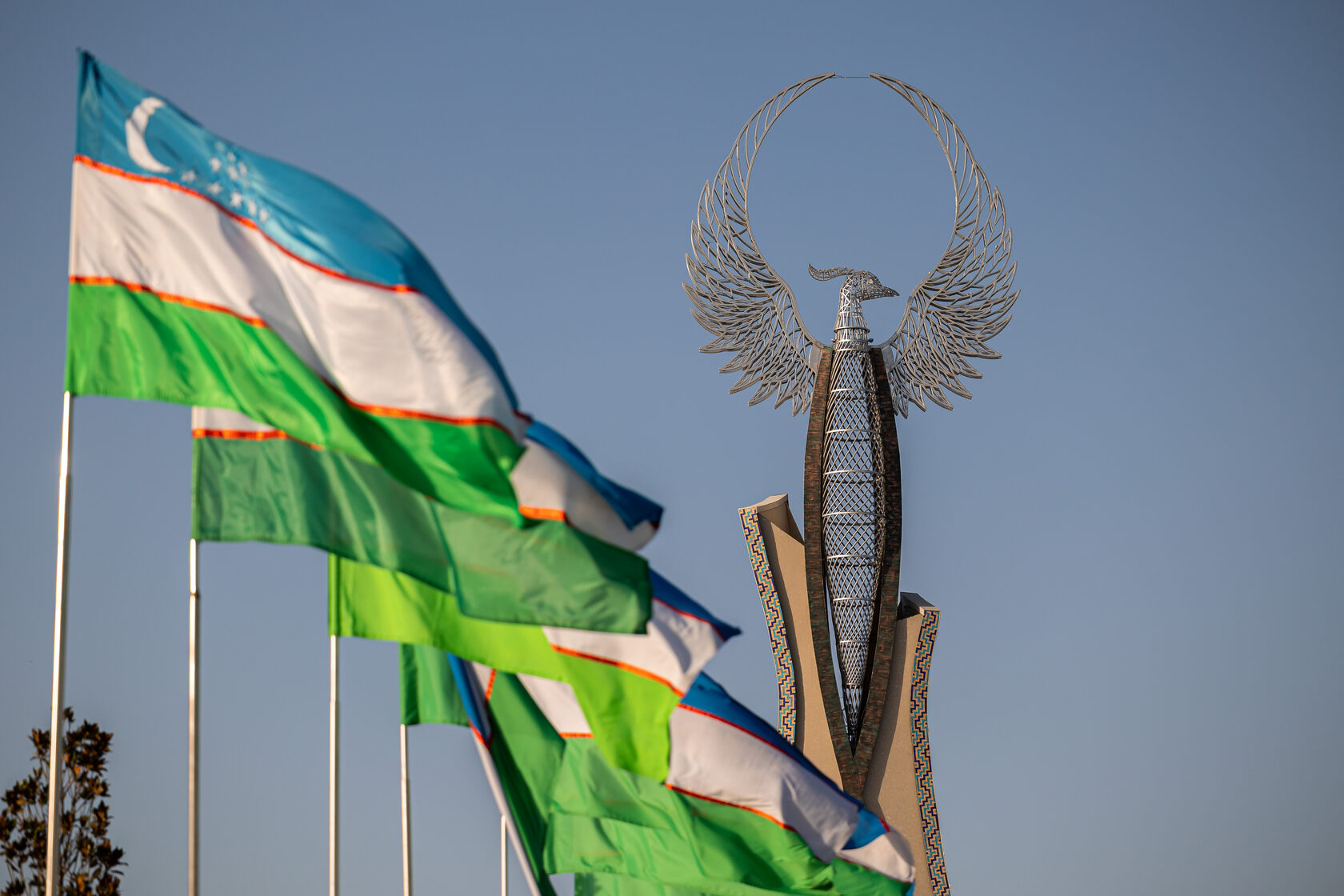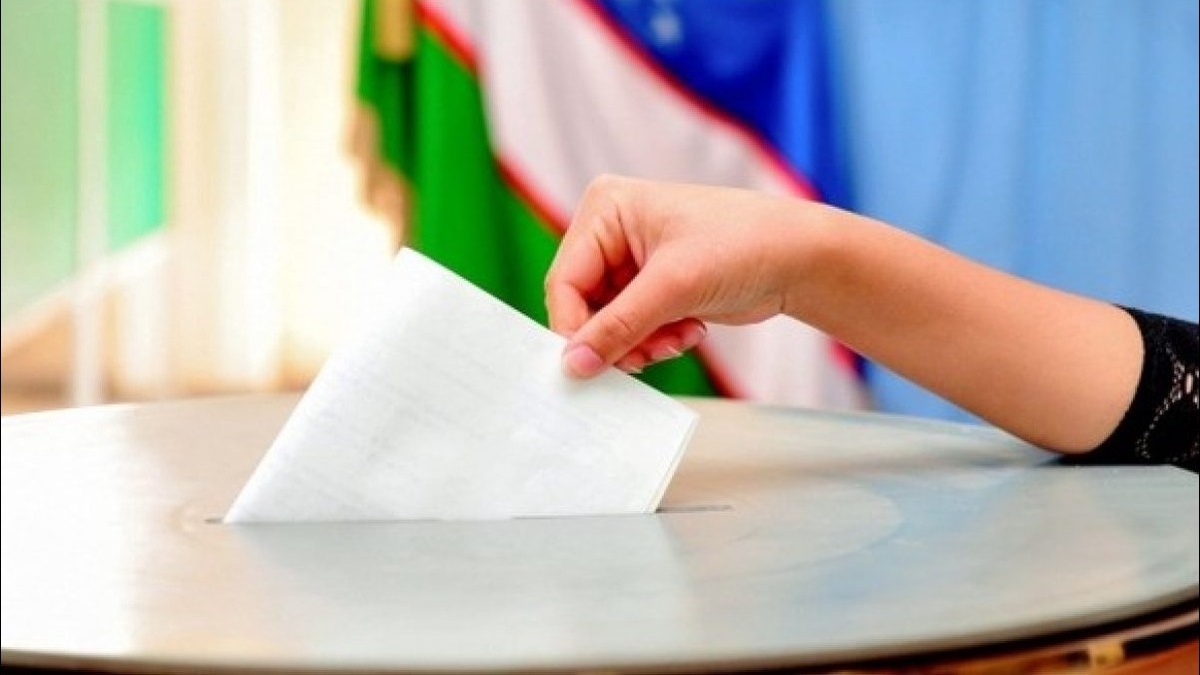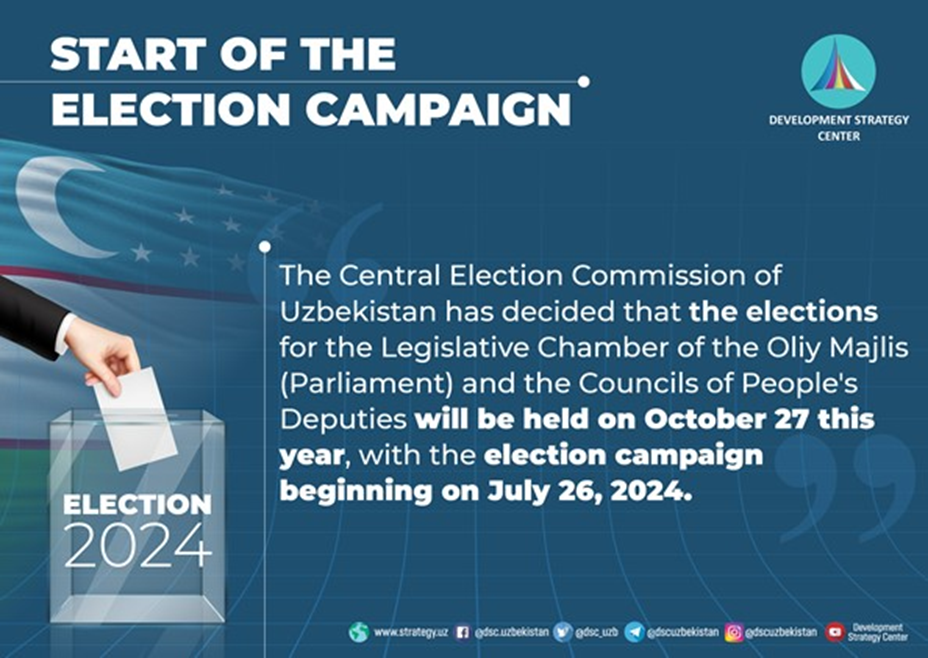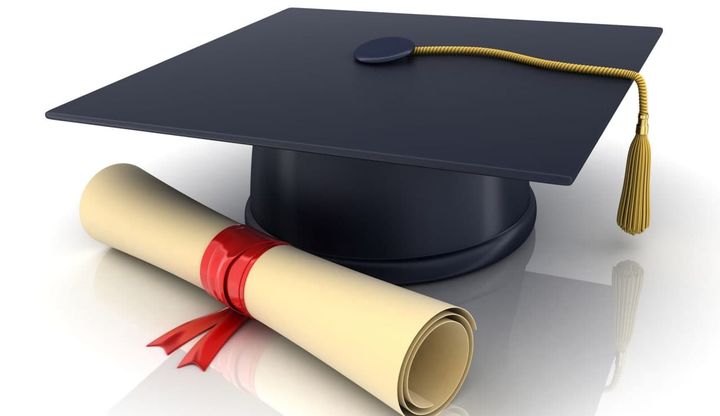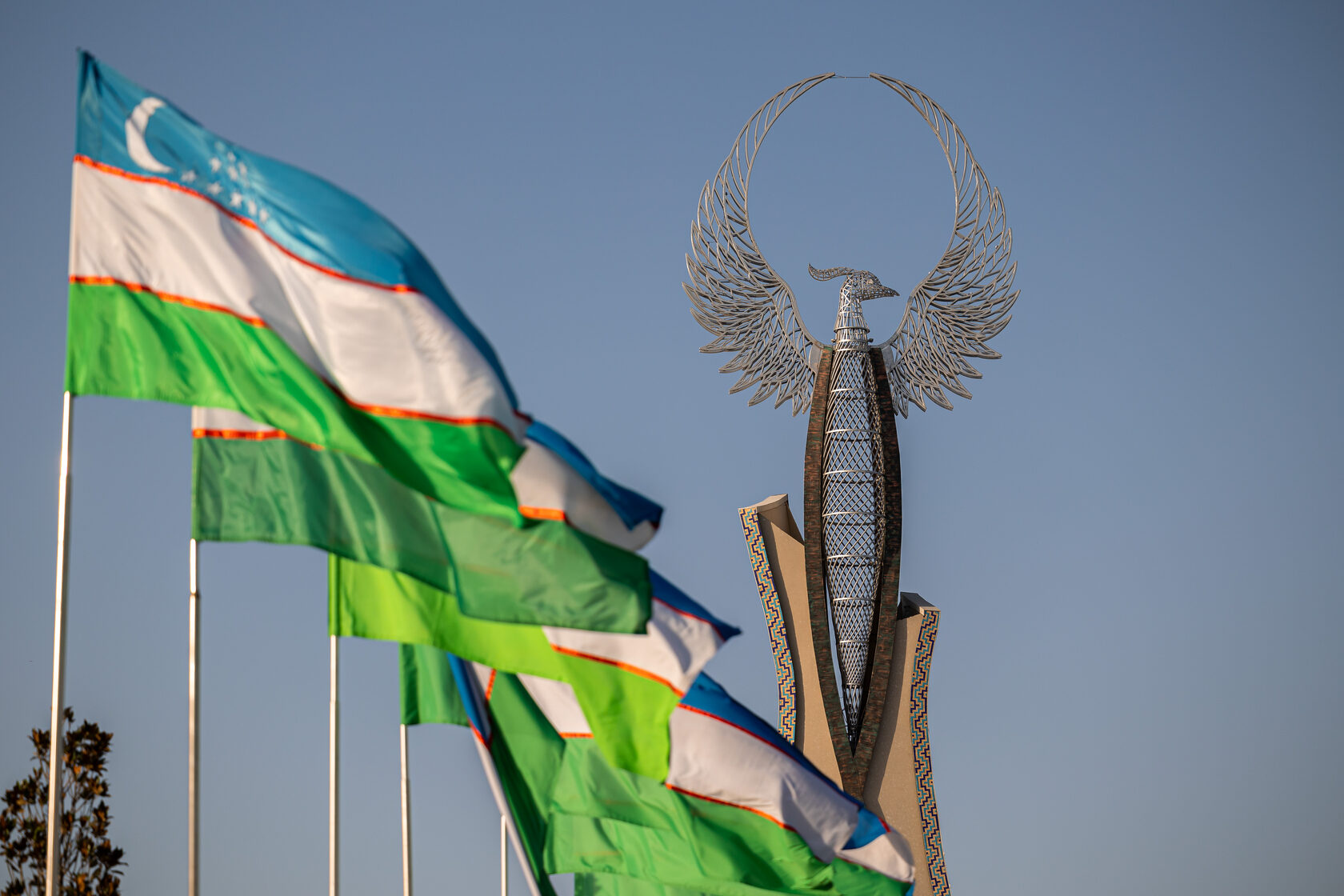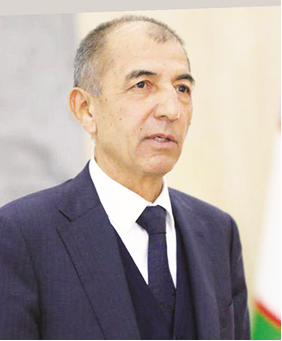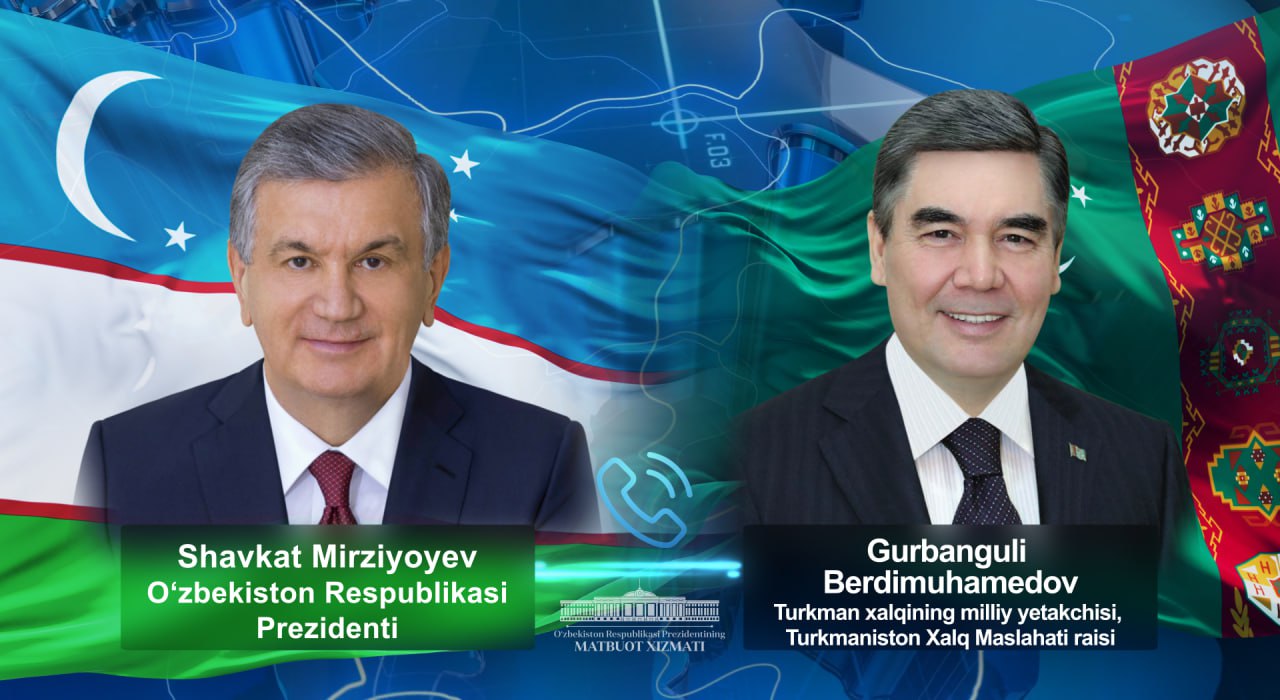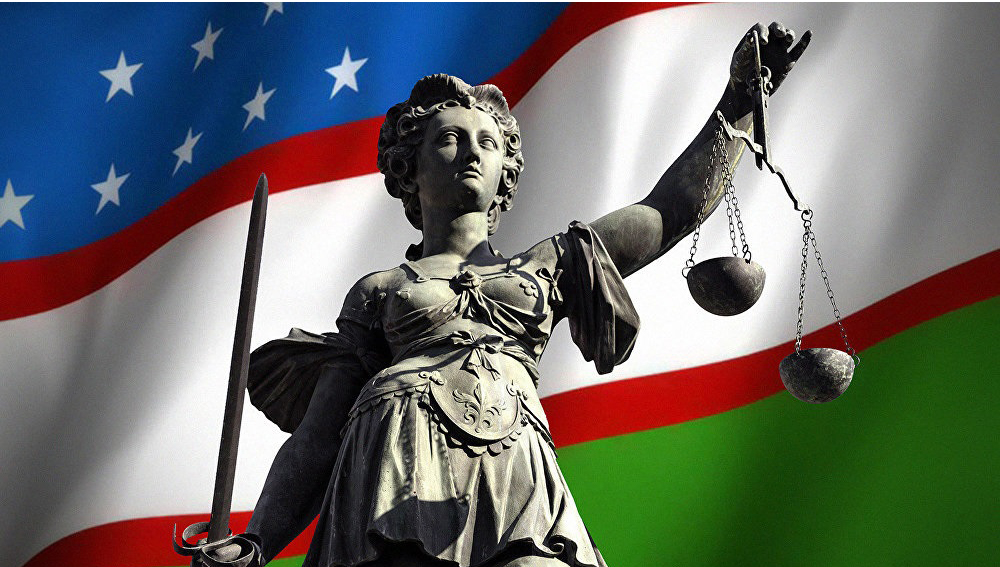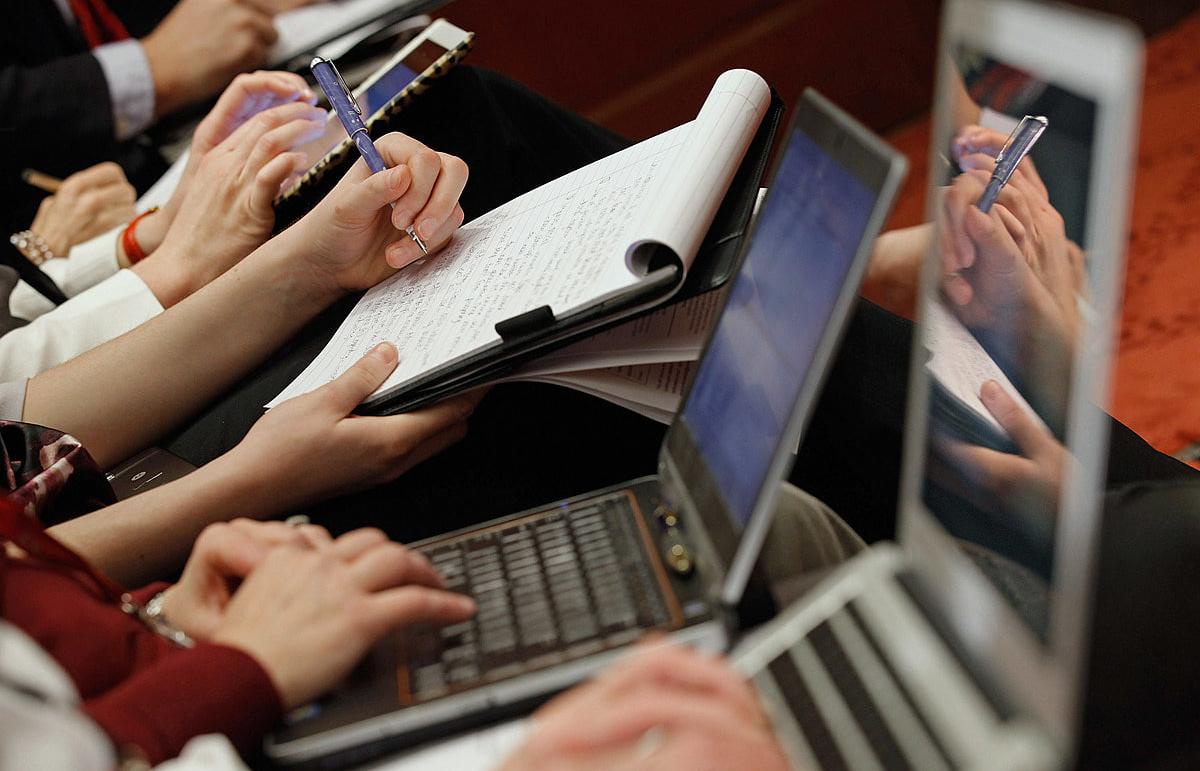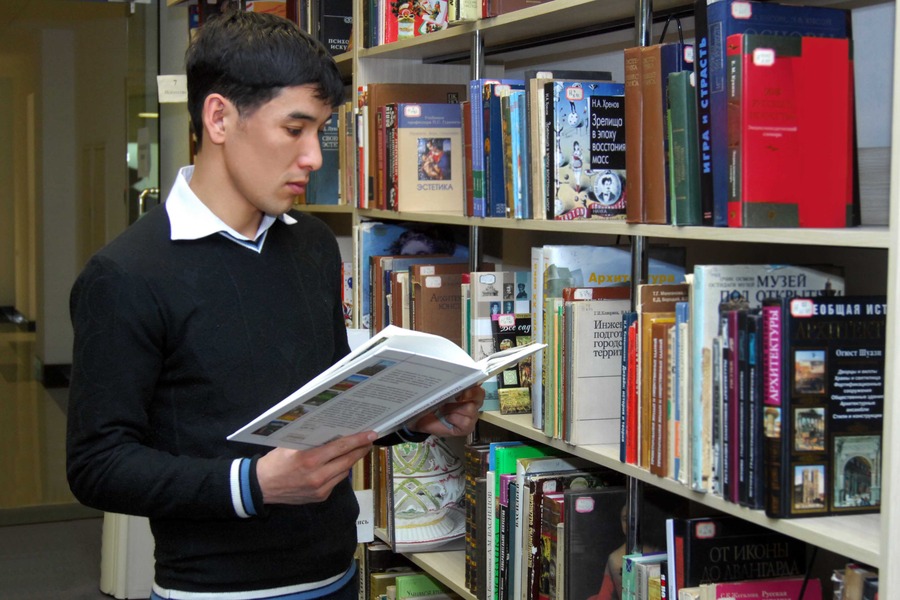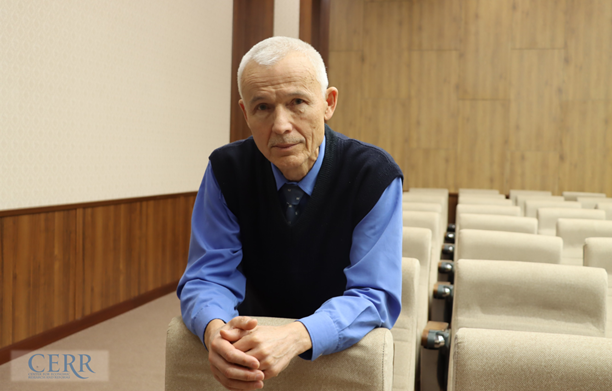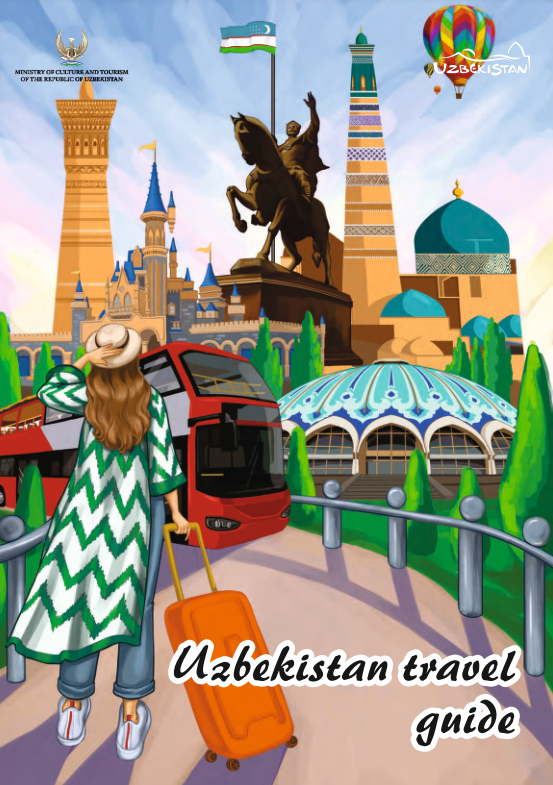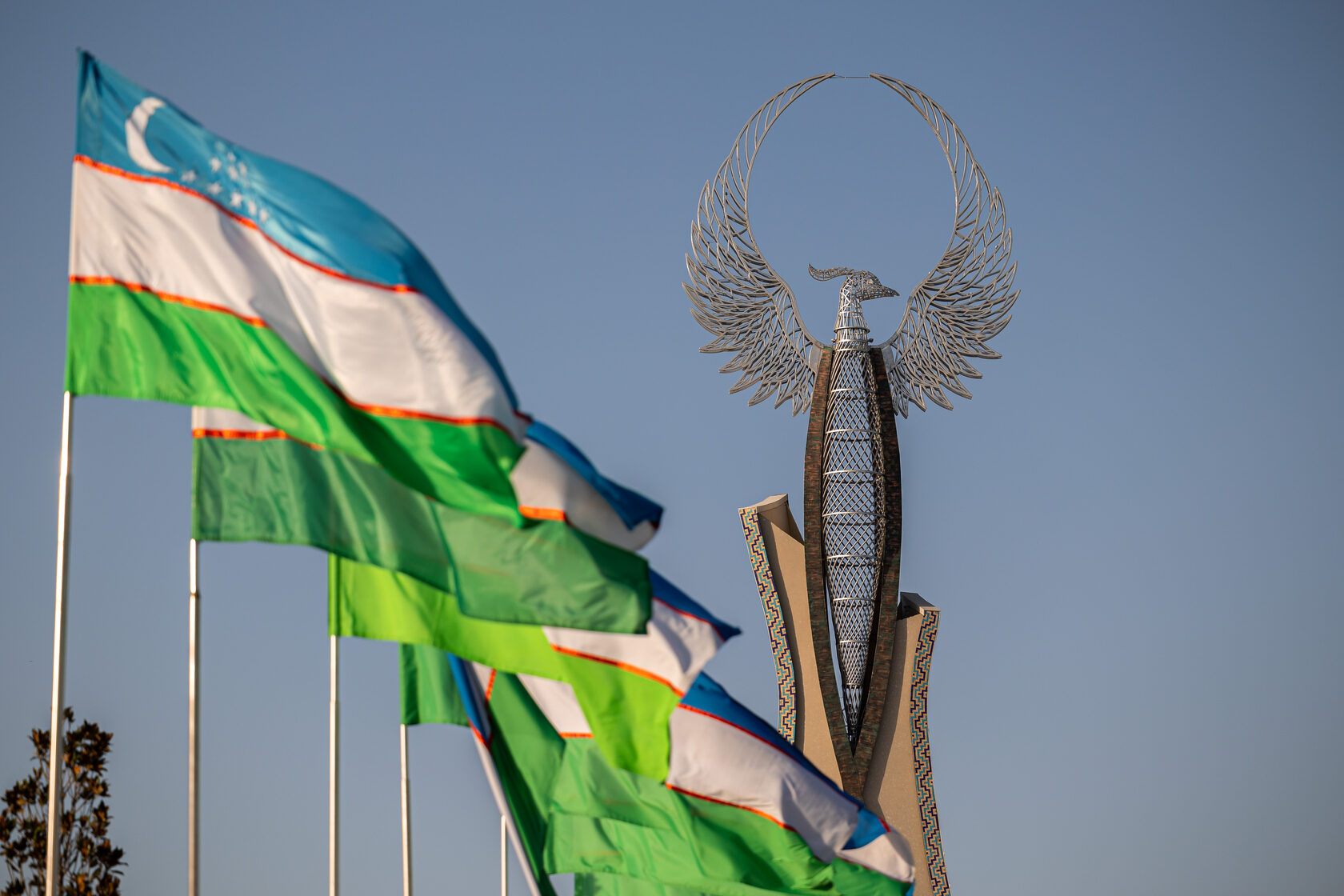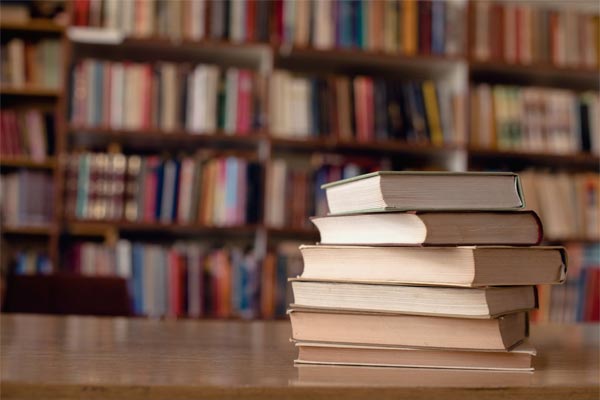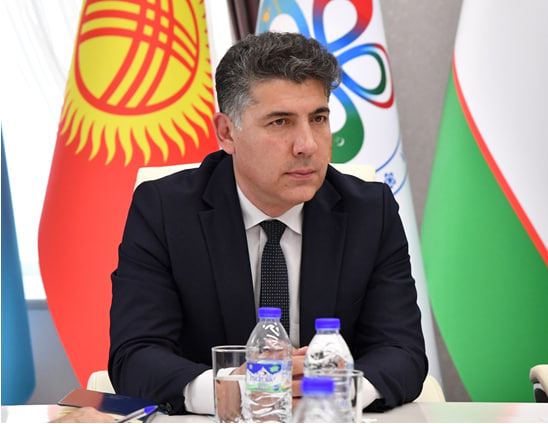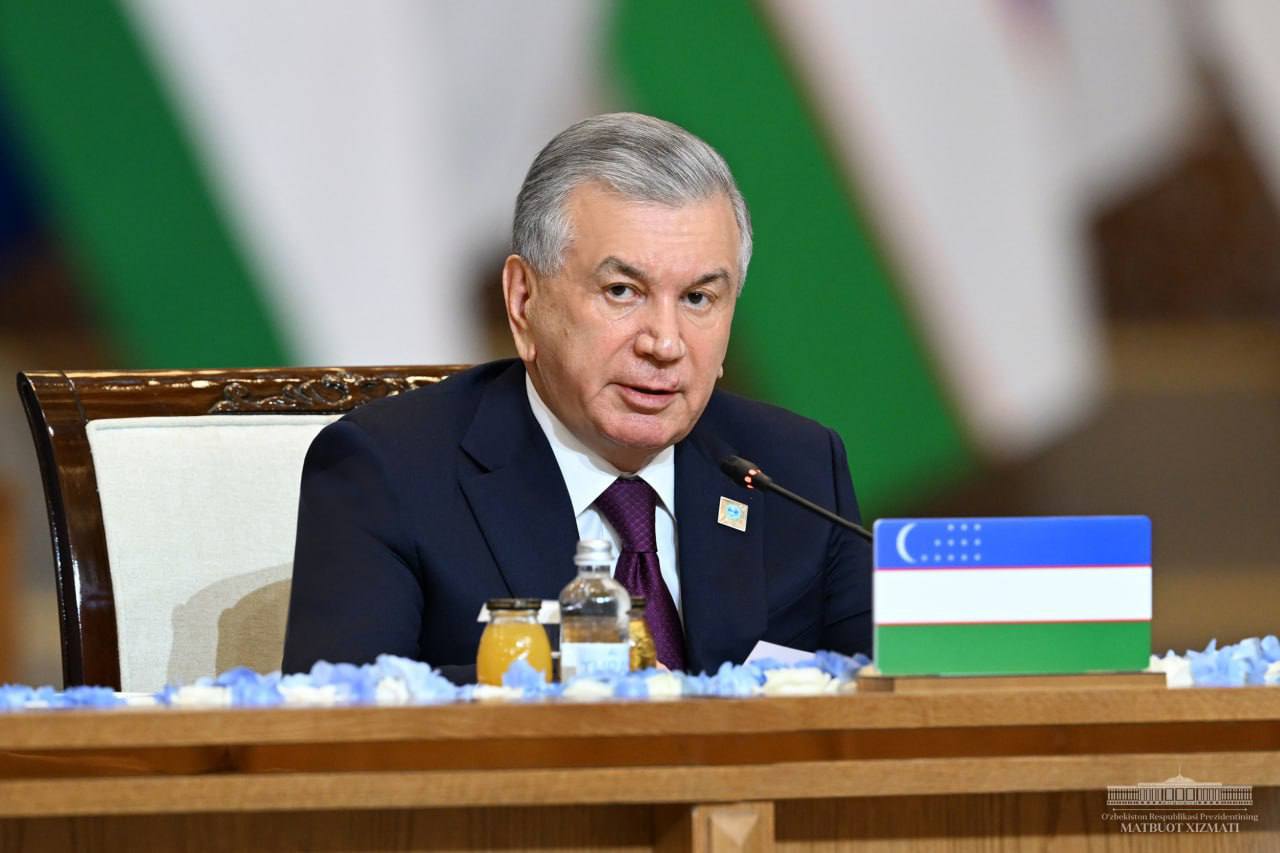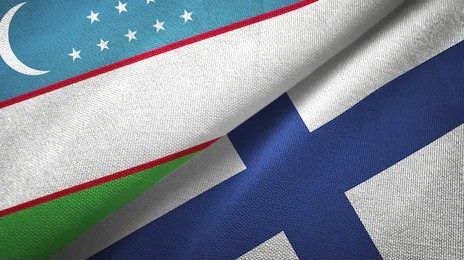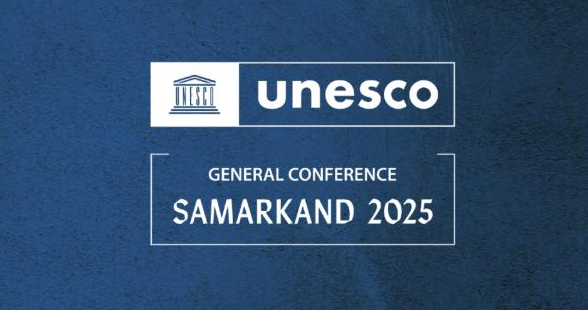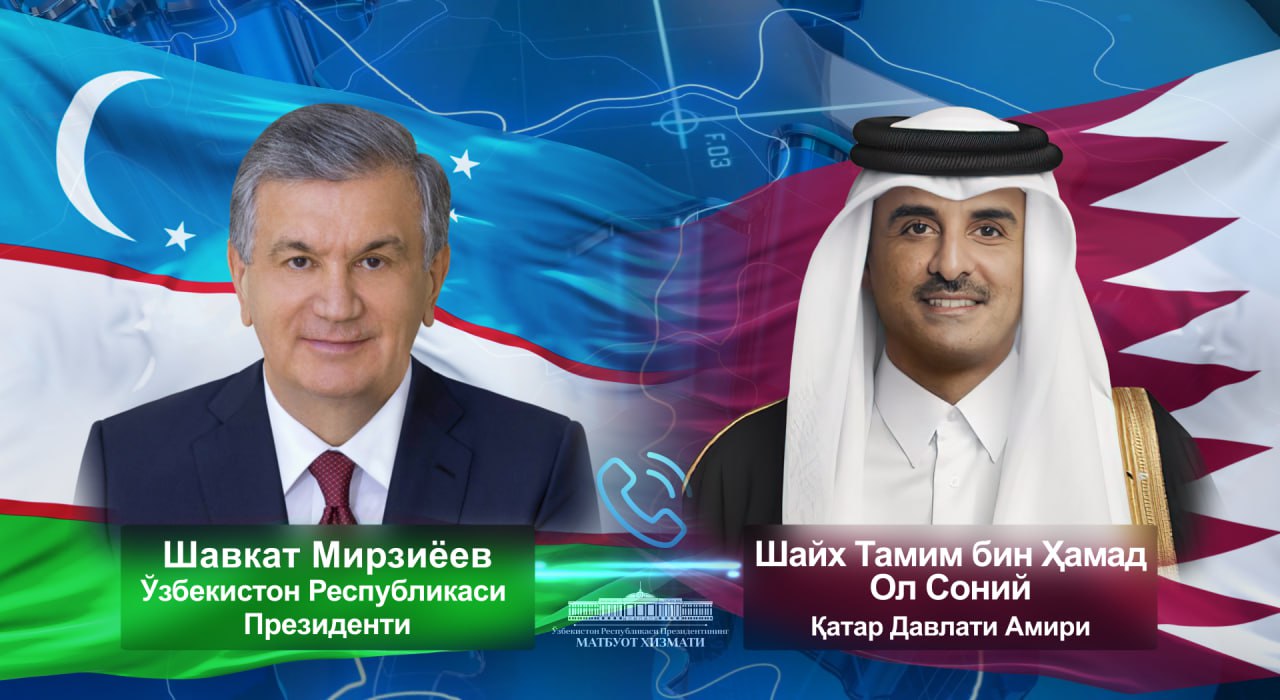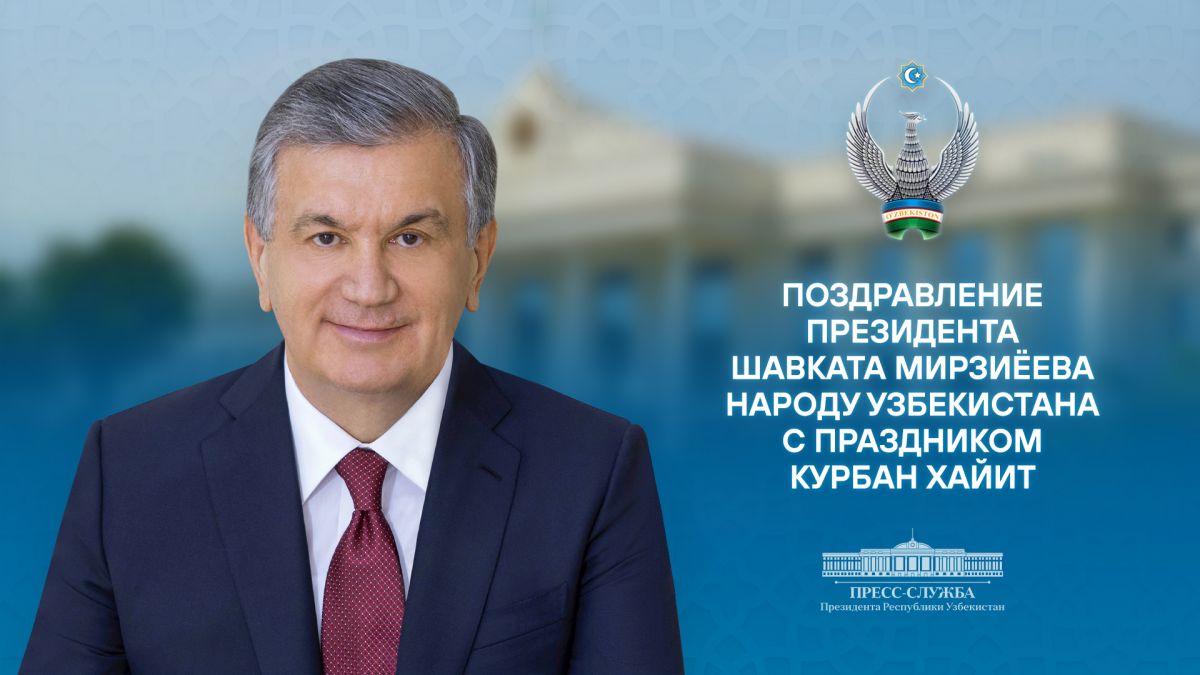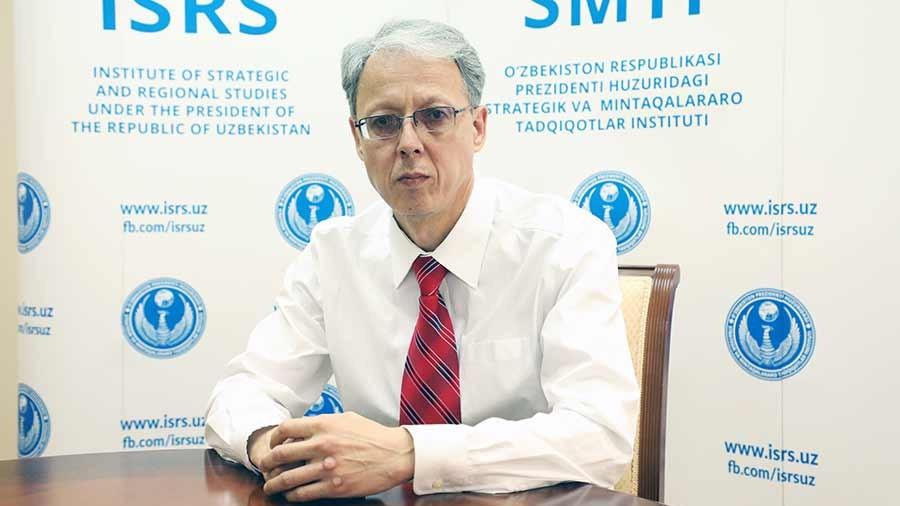Phone
Consular Issues
Phone
Uzbekistan news
We recommend
Uzbekistan: a focus on promoting reading
📅 24.06.2024
Libraries play a key role in education, culture, and community development, providing an invaluable resource for accessing knowledge, preserving cultural heritage, and promoting intellectual growth. In the modern information society, they remain an important institution that promotes the education and self-development of people of all ages.
President Shavkat Mirziyoyev emphasised during the opening ceremony of the People's Library under the President of the Republic of Turkey in Ankara: “Intellectual potential, high morale is what makes a nation strong. The source of this invincible power is books and libraries – the great invention of mankind”.
At the present stage, education has become one of the most important areas of state policy. The government of the Republic of Uzbekistan pays special attention to the development of this sphere, recognizing its key role in the prosperity of the country. In recent years, the republic has achieved significant success in the educational domain. These achievements are aimed at modernizing the system, improving the quality of education and training, and expanding access to education for all citizens of the country.
At the same time, special attention is paid to the promotion of reading and the fostering of the reading culture of the population. And in the Presidential Decree adopted on September 13, 2017, “On the program of comprehensive measures to develop the system of publishing and distributing book products, improving the culture of reading”, clear goals are outlined for the creation of an effective system of information and library services to the population, which served to move this area to a new stage of development and contributed to raising the level of social and information culture and the role of libraries, made it possible to develop and implement modern innovative and educational technologies that increase the competitiveness of Uzbekistan in the world market.
In addition, the Presidential Decree “On further improvement of information and library services for the population of the Republic of Uzbekistan” was adopted on June 7, 2019. The main goals of the decree are:
- improving the regulatory framework in order to ensure high-quality social guarantees to the population for information and library services;
- development of information and library institutions taking into account modern requirements;
- promoting the sustainable development of information and library services the for population in the regions;
- strengthening the material and technical base of information and library institutions;
- development of public-private partnerships in the library sector, a network of private and electronic libraries;
- expanding cooperation with Internet resources that specialize in distributing electronic books to improve the efficiency of libraries and the efficiency of servicing (including paid) users;
- ensuring the safety of information and library institutions and the safety of information and library collections as part of the national and world cultural heritage;
- formation and enhancement of the information culture of society, sustainable interest in national history and culture, enhancement and promotion of a reading culture;
- staffing information and library institutions with qualified specialists.
The adoption of this decree expands the range of services in the country, including access to electronic resources and holding cultural and educational events, as well as improving staff qualifications and introducing modern methods of user service. In addition, these changes not only contribute to the development of the information society and economic growth by attracting investment in education and culture, but also promote the formation of a literate and informed society, which is an important step in the development of the country.
The Resolution of the Cabinet of Ministers dated December 14, 2020 approved the National Program for the Development and Support of a Reading Culture for 2020-2025, which includes the publication of quality books that meet the spiritual, educational, artistic and aesthetic needs of the population; supporting the activities of publishers and artists, publishing children's literature; translation of the best examples of national and world literature; simplification of the organization of book sales; improving the delivery system for newly published books and distribution of information sources; expansion of international cooperation in the field of online ordering of foreign work, their delivery and distribution.
In turn, it should be noted that within the framework of the “Uzbekistan - 2030” Strategy, special attention is paid to the popularization of masterpieces of Uzbek and world literature. The country's leadership strives to instil in citizens a love of reading and ensure access to libraries and information services for everyone.
The Strategy “Uzbekistan - 2030” puts forward such main goals as increasing the number of young book lovers to five million, the annual creation of 100 works of art and 50 books for children and adolescents, the publication of the multi-volume book “Uzbek adabiyoti khazinasidan” (“From the Treasury of Uzbek Literature”), the 100-volume book “Jakhon Bolalar Adabiyoti Durdonalari” (“Pearls of World Children’s Literature”) in Uzbek, as well as the digitalization of a book fund of almost 40 million books.
On November 28, 2023, there was signed the Presidential Decree “On measures to implement the project “A Thousand Books for Youth”, aimed at creating a system for translating books popular in the world into Uzbek, that contribute to increasing the intellectual and scientific potential of the younger generation.
At the same time, within the framework of the “Olympiad of Five Initiatives”, the following 5 projects in the field of reading and intellectual games are annually implemented: “Young Reading Family”, “Poetry Competition”, “Young Reader”, the intellectual game “Zakovat” and the project “Example of Foreign Languages”. These projects increase the interest of young people in reading books and help expand logical thinking and knowledge through intellectual games.
The “Young Reader” and “Young Reading Family” competitions are important events held to promote reading, the spiritual enrichment of youth, and increase their intellectual potential. This competition serves to increase interest in books among young people and expand their knowledge and horizons.
Also, within the framework of the project “A Thousand Books for Youth”, the Agency for Youth Affairs will have to work on acquiring rights to use works from authors, translating them into Uzbek, and preparing for printing and publishing books on the basis of a state order and at the expense of the State budget (with the exception of books, published for state higher educational institutions).
Two stages have been established for translation into Uzbek and the publication of popular books in the world. First: a preliminary list of books is formed annually by the Expert Council. Second: the preliminary list is posted in the information systems of the Agency for Youth Affairs for selection by the population by voting, and thus the final list is formed.
The list of books published annually must include at least 20 percent of popular science works. The rights to the works prepared for publication will belong to the Agency for Youth Affairs, which will provide them free of charge to publishing houses.
It is also planned to create and ensure the continuous operation of a special mobile application that accumulates literature in the Uzbek language and provides the population with free access to a wide range of information. On the recommendation of the Expert Council, the works will be distributed to information and library institutions (including libraries of public and administration authorities), and electronic versions will be donated free of charge to the Alisher Navoi National Library of Uzbekistan and the relevant institutions of the Academy of Sciences of the Republic of Uzbekistan for wide use by readers.
The necessary spiritual, legal, material, and technical basis has been created in the Republic to develop children's literature and improve the quality of textbooks and teaching aids. The country's publishing houses have increased the publication of works by authors of world and Uzbek children's literature. In accordance with a number of documents adopted to promote book reading, systematic measures are being taken in all regions to popularise literature among children and adolescents. Over the past four years, a number of presidential decrees and government resolutions have been adopted to guide the country's publishing, printing, and bibliographical information institutions.
Thus, bibliographical information services play a critical role in ensuring public well-being by providing citizens with easy access to information, knowledge, and culture. In addition, the development of digital services, collaboration with communities, and the use of new technologies strengthen the role of libraries as centres of learning, information, and communication. This helps to enhance the capabilities of people and stimulates their desire for education. The development of the potential of information and library services contributes to lifelong learning, self-improvement, cultural and spiritual enrichment of the population. This is of crucial importance for modern society.
Ramzidin Nuridinov
Expert of the Development Strategy Center.
Akramjon Ne’matov: In his Address, President of Uzbekistan placed a key emphasis on the country’s socio-economic development, the enhancement of citizens’ well-being and the strengthening of the economy’s competitiveness
📅 28.12.2025
Comment from the First Deputy Director of the Institute for Strategic and Interregional Studies (ISRS) under the President of Uzbekistan to Dunyo Information Agency
The focal points of President Shavkat Mirziyoyev’s address to the Oliy Majlis and the people of Uzbekistan as well as the signals conveyed to both domestic and international audiences, were highlighted in a commentary by Akramjon Ne’matov, the First Deputy Director of the Institute for Strategic and Interregional Studies (ISRS) under the President of Uzbekistan, in an interview with Dunyo IA correspondent.
The expert highlighted that the primary focus of the Address was on the country’s socio-economic development, the improvement of citizens’ well-being and the enhancement of the national economy’s competitiveness. According to him, the President of Uzbekistan clearly emphasized that it is the economy, the sustainability of development, and the quality of growth that today define Uzbekistan’s opportunities both domestically and in its external engagements.
Akramjon Ne’matov emphasized that despite a challenging and fragmented global environment, Uzbekistan’s economy continues to demonstrate steady growth. For the first time in the country’s history, its GDP surpassed $145 billion this year, whereas just nine years ago, reaching the $100 billion mark was considered an ambitious milestone. Even amid disruptions in global supply chains, exports grew by 23% to $33.4 billion, electricity production in 2025 reached 85 billion kilowatt-hours, and foreign exchange reserves exceeded $60 billion. Over $43.1 billion in investments were attracted to the national economy this year, raising the investment-to-GDP ratio to 31.9%, a clear indicator of the country’s rising investment appeal.
In this context, the expert noted, maintaining high economic growth rates remains an absolute priority. However, what is particularly significant is the shift in focus from quantitative expansion toward a technological and innovative development model. This entails building a knowledge- and technology-based economy, modernizing industry, advancing the digital economy, promoting scientific research and fostering technology transfer. As Akramjon Ne’matov stressed, “An innovative economy ensures long-term competitiveness and reduces dependency on raw materials, which is critically important amid global instability”.
Another strategic priority highlighted by the President of Uzbekistan is the stimulation of domestic demand. According to the expert, the development of the domestic market is seen as a key driver of sustainable growth, encompassing higher household incomes, support for small and medium-sized enterprises, and broader access to financial instruments. Domestic demand, he emphasized, provides stable sources of development and helps shield the economy from external shocks.
Special attention, Akramjon Ne’matov noted, was also given to workforce development and the creation of a new labor market architecture. The President outlined objectives for modernizing vocational education, fostering new competencies, and shaping a flexible and adaptive labor market capable of meeting the needs of a modern economy. He stressed that the labor market and professional development determine the quality of human capital – the key resource of the 21st century.
At the same time, an important focus is placed on ensuring ecological balance, developing “green energy” and the rational use of water resources. The transition to sustainable development, the adoption of renewable energy sources, improving energy and water efficiency, and adapting to climate change are regarded as strategic objectives. Ecology and “green” energy are now considered key factors for national security and sustainable development, Akramjon Ne’matov emphasized.
Among the President of Uzbekistan’s key priorities is also the formation of modern state governance and a fair judicial system. Central to this agenda are enhancing the efficiency, transparency, and accountability of public administration, strengthening the rule of law, digitizing public services and reforming the judiciary. The expert stressed that effective governance and a fair judicial system build trust, enhance investment appeal, and ensure long-term stability.
Overall, he noted, these priorities reflect Uzbekistan’s shift from quantitative growth toward a qualitative model of modernization focused on long-term outcomes.
Based on these strategic directions, Uzbekistan is shaping a framework of key cooperation priorities with international partners, aimed at deepening engagement through high-quality collaboration.
The first priority is technological and industrial partnership. This includes establishing joint high value-added production, localizing advanced technologies, and implementing collaborative research and development projects. The strategic goal is to move beyond simple technology adoption toward co-creation and practical implementation of innovations.
The second priority is the development of human capital. This encompasses joint programs for training and retraining personnel, sustained collaboration between universities, research centers, and industry, and the cultivation of new competencies demanded by the modern economy. The objective is to ensure the sustainability of reforms and enhance the quality of the workforce.
The third priority is “green” energy and resource efficiency. The focus is on joint initiatives in renewable energy, water-saving technologies, and environmentally sustainable solutions. These efforts are viewed as key instruments for reducing ecological risks and enhancing the long-term resilience of the economy.
The fourth priority is infrastructure and multi-level connectivity. The development of transport, logistics, and digital infrastructure aims not only to deepen Uzbekistan’s integration into regional and global supply chains but also to strengthen internal connectivity across the country’s regions, reduce territorial disparities, and improve access to markets, services, and economic opportunities. Taken together, these initiatives reinforce Uzbekistan’s role as a stable regional hub for cooperation and transit.
The fifth priority is institutional development and the quality of public governance. This includes promoting principles of transparent and efficient governance, establishing a fair and independent judicial system, enhancing the effectiveness and professionalism of the civil service, and fostering experience-sharing in the digitalization of public services. These measures create a predictable institutional environment, strengthen trust among investors and partners, and serve as a solid foundation for sustainable, long-term international cooperation.
In conclusion, Akramjon Ne’matov emphasized that Uzbekistan views collaboration with foreign partners as a strategic priority. The country aims to transition from broad but largely quantitative engagement toward high-quality partnerships, centered on technology, human capital, and sustainable growth that align with the long-term interests of all parties.
Dunyo IA
Members of the Uzbekistan national chess team
📅 24.09.2024
I cordially congratulate you on your worthy participation in the 45th World Chess Olympiad held in Budapest, the capital of Hungary. You have opened another bright page in the history of Uzbek chess, taking the honorable third place among representatives of about 200 countries.
In very sharp and uncompromising chess duels, you, having demonstrated high intellectual potential, unwavering will and steadfastness, outperformed the teams of such countries as China, Serbia, Armenia, Germany, Azerbaijan, Slovenia, Spain, which is truly admirable.
By your example, we have seen that the youth of New Uzbekistan is capable of achieving truly high standards in competitions of mind and thinking, and this has filled our hearts with a sense of joy and pride.
The results achieved by Nodirbek Abdusattorov, Zhavohir Sindorov, Shamsiddin Vokhidov, Nodirbek Yokubboyev and Zhakhongir Vokhidov, who displayed outstanding intellectual abilities, are very valuable and dear to us.
It should be especially noted that Shamsiddin Vokhidov, having won a gold medal and Nodirbek Abdusattorov a silver medal in the board section, proved again what true masters of chess game they are.
Along with courageous and brave young men, our purposeful chess players such as Afruza Hamdamova, Nilufar Yokubboeva, Umida Omonova, Marjona Malikova, Nodira Nodirjonova, who directed all their strength and energy, skill and professionalism to worthily defend the honor of the Motherland, also took part in the competition.
It is undoubtedly noteworthy that they improved their results from the last Olympiad, taking the 12th place among the
170 countries. It is gratifying that our chess player Nodira Nodirjonova won the 2nd place in the board section and was awarded a silver medal. I sincerely congratulate them all, wish them to reach even higher milestones and take prizes at future competitions.
Undoubtedly, the tremendous success of our chess players is a practical result of the enormous attention paid to the youth in New Uzbekistan, the ongoing large-scale reforms to develop sports, including the most intellectual one - chess.
Undoubtedly, such bright achievements further unite our people on the way to noble goals, serve as a source of inspiration for thousands of young men and women.
Taking this opportunity, on behalf of all our people and on my own behalf I express my sincere gratitude to you, my dear ones, to your experienced mentors and coaches who made a great contribution to your success, to all members of the national team, to your parents who supported you and to all chess fans.
May you have good luck in conquering the highest peaks at the next World Chess Olympiad, which will be hosted by our native Uzbekistan for the first time in 2026!
I wish you all health, happiness and well-being, great success in your studies and subsequent activities. May your path to victory be steadfast, my dear ones!
Uzbekistan’s environmental initiatives are aimed at creating a healthy and sustainable environment in Central Asia
📅 26.07.2024
Due to the Aral Sea tragedy, the negative consequences of climate change are more acute in Central Asia. The increase in air temperature in our region is twice the world average. The number of extremely hot days is expected to double and the area of glaciers will shrink by a third. In the last 30 years, the rate of warming in Central Asia is higher than the global average, and the average annual temperature has increased by 0.5 degrees. According to forecasts, the temperature is expected to increase by 2.0-5.7 degrees by 2085.
Uzbekistan is making active efforts to improve the quality of the environment and prevent the negative consequences of environmental problems. In particular:
Within the framework of international cooperation
Currently, the need for international cooperation in the field of environmental protection is determined by the growing ecological interdependence of all countries. Ozon layer depletion, pollution of the atmosphere and oceans, and the rise in temperature on our planet affect the entire world community, not just the countries engaged in environmentally dangerous activities. Therefore, today, a number of countries have established cooperation with the United Nations Organization on issues of environmental safety.
Such cooperation is based on a number of principles generally recognized by the international community. They are partly reflected in interstate agreements and acts, normative documents of international organizations, and summarized in the decisions of the most important international conferences dedicated to environmental protection and the regulation of cooperation between states and peoples in this field.
Based on this, Uzbekistan is actively promoting important climate initiatives aimed at uniting the region to combat climate change. These ideas of the President of Uzbekistan Shavkat Mirziyoyev are constantly supported by the countries of the region.
As a logical continuation of the formation of a unified climate agenda for Central Asia, the initiative to develop a regional strategy for adaptation to climate change was announced by Uzbekistan at the 5th meeting of state leaders. In addition, the Head of Uzbekistan proposed to establish a multilateral platform at the level of the ministers of ecology - "Central Asian climate dialogue", which can be an integrating link in the path of "green" development in Central Asian countries.
In addition, President Shavkat Mirziyoev put forward a number of proposals at the United Nations Climate Change Conference (COP28). In particular, our country's President advocated for an expeditious agreement on the Global Framework for Climate Adaptation within the framework of the Paris Agreement. At the same time, he noted the need for a fair, transparent and inclusive transition to a low-carbon economy on a global scale, in which the interests of developing countries must be taken into account. He proposed to consider this urgent problem on a permanent basis, including within the framework of the "G7" and "G20" summits.
Within the framework of environmental reforms in our country
A strategy for the transition to a «green» economy
Uzbekistan adopted the strategy of transitioning to a "green" economy for 2019-2030. The main goals of this strategy are:
Preservation of natural resources: Modernization of irrigation systems, introduction of water-saving technologies.
Use of alternative energy sources: Expanding the use of solar, wind and biomass energy.
Introduction of cost-effective means in economic sectors: Improving energy efficiency in manufacturing and service sectors.
Improvement of environmental legislation
Legislation is also being improved to ensure environmental stability in Uzbekistan. These laws are aimed at providing legal groundwork to the reforms implemented in the fields of environmental protection and ecological stability.
Project "Restoration of sustainable forest landscapes in Uzbekistan"
The project "Restoration of sustainable forest landscapes in Uzbekistan" is being implemented in collaboration with the International Development Association. The cost of the project is more than 205 million dollars and it will be implemented within 6 years. It is important that the goals of the project include such tasks as expanding the territory of forests, strengthening the material and technical base of forestry, introducing sustainable management and developing the infrastructure of ecotourism.
"Uzbekistan - 2030" strategy
In the "Uzbekistan-2030" strategy adopted by the Decree of the President of Uzbekistan on September 11, 2023, reforms in the framework of water resources conservation and environmental protection are set as one of the priority goals. A number of measures are envisaged within the framework of the strategy, and they are being effectively implemented. In particular,
National project “Yashil Makon” ("Green Zone").
The Decree of the Cabinet of Ministers No.144-F of March 7, 2024 was adopted in order to implement the activities of the nationwide project "Green Space" in 2024. This project included a number of important initiatives aimed at improving the environmental situation in Uzbekistan and expanding green areas.
138.1 million tree saplings were planted in the spring planting season of 2024 within the "Green Zone" national project. This indicator made 110.5 percent compared to the planned one. This part of the project is aimed not only at environmental improvement but also at improving the aesthetic appearance of our cities.
"Green Parks" and "Green Belts"
In particular, 257 "Green Parks" were established, their total number reached 517. Also, "Green Belts" were established by planting 5.3 million tree saplings in and around industrial enterprises. These efforts were made to reduce the impact of industrial enterprises and protect the environment.
Initiatives of organizations and agencies
Ministries and agencies are also contributing to the aforementioned work. In particular, the Ministry of Defense created a park of 100 hectares, the Ministry of Digital Technologies and the Ministry of Mining and Geology — 65 hectares. These efforts are critical to ensuring the comprehensiveness and sustainability of the project.
Tree planting and waste recycling
In our country, trees have been planted near highways and railways, on river and canal banks, at industrial enterprises and gas stations. These are especially aimed at reducing the negative impact of transport and industry on the environment.
On average, 6.8 million tonnes of household waste are produced in our country per year. In recent years, the number of neighbourhoods covered by sanitation services has increased by more than 90 percent. The level of waste processing was 38.1 percent as of July 1, 2024, and the number of such enterprises was 313 as of February.
Waste treatment and landfills
A new system for the regulation of landfills and waste processing is being launched. In each region, 3-4 landfills with a convenient location are being turned into special eco-industrial zones, and recycling projects are being implemented. In the remaining landfills, a new practice is being used to start temporary waste collection and reloading stations. The landfills that exhausted their resources are closed, poplar, mulberry, elm and maple trees are planted around them, and "green belts" are being established.
Avazbek Kholbekov,
Head of Department – Development Strategy Centеr
Address by the President of the Republic of Uzbekistan Shavkat Mirziyoyev at the “SCO Plus” meeting
📅 07.07.2024
Esteemed Heads of Delegations!
Once again, I would like to express my gratitude to the President of the Republic of Kazakhstan, esteemed Kassym-Jomart Tokayev, for the warm welcome and excellent organization of the Summit in Astana.
We are highly estimate Kazakhstan’s effective chairmanship of the SCO, which has facilitated the expansion of multifaceted cooperation within the Organization.
It is a great honor to have with us the heads of observer-states and dialogue partners, esteemed guests.
Dear Participants of the Meeting!
I believe that a meeting in the broad format of SCO Plus is timely and necessary.
The world needs to restore trust, justice and solidarity more than ever.
The current global political and economic landscape is characterized by fractures, wars, and conflicts that are undermining the foundations and key principles of the system of international relations.
The contradictions and protectionism that have emerged are creating fragmentation of the world economy and supply chain disruptions, which are in turn creating new dividing lines that prevent countries from cooperating effectively in trade, finance and investment, technology transfer and innovation.
The only viable solution to these challenges is to consolidate efforts in the interest of global security, development, and prosperity.
The SCO has always advocated for and has been committed to a just world order based on the universally recognized principles of international law and multilateralism, with the UN playing a central coordinating role.
In this regard, our Organization continues to serve as a focal point for many countries seeking to build broad cooperation without political and ideological biases.
Concurrently, the evolving circumstances necessitate the implementation of new strategic approaches to enhance the efficacy of the Shanghai Cooperation Organization.
Today, as it stands on the threshold of its 25th anniversary, it is imperative to develop a new agenda that aligns with the Organization’s immense potential and growing role in world politics and economy.
Building on the “Shanghai Spirit” and the founding principles of the Charter, unity and cohesion within the Organization should be preserved. I propose to intensify joint efforts with the objective of strengthening the atmosphere of trust and friendship within the SCO and to remove barriers to deeper cooperation.
First of all, it is necessary to undertake a comprehensive reevaluation of the conceptual foundation underpinning the SCO’s security-related activities.
The nature and scope of contemporary challenges have undergone a significant transformation since the establishment of the Organization.
Environmental and natural disasters, water and food shortages, cyberattacks, new methods of undermining sovereignty and economic stability pose an increasing threat.
All of this should also be taken into account when considering the strengthening of the SCO's potential, including the establishment of the Universal Center for Countering Security Threats and Challenges.
In this context, I propose to hold annually SCO Plus Dialogue on Security Issues with the participation of the heads of the competent bodies and experts of all our countries.
Uzbekistan proposes to consistently “reload” trade and economic cooperation in the SCO area, which continues to be fragmented.
So far, we could not manage to create a solid foundation for multilateral trade and inter-sectoral partnership.
For a long time, no consensus has been reached on the establishment of the SCO Development Fund and the SCO Development Bank.
Today at the summit we agreed to take comprehensive measures to simplify trade procedures and develop e-commerce, stimulate technological cooperation, including in the industries of the future.
In order to create an effective platform for business dialogue with the participation of all partners, we propose the annual holding of the SCO EXPO International Industrial Exhibition in our countries.
It is also important to actively promote economic interaction and seek opportunities for linking joint initiatives with the Economic Cooperation Organization, the Gulf Cooperation Council, the Eurasian Economic Union, ASEAN and others.
The new geopolitical realities convince us of the need to build an inclusive and integrated transport and transit system to strengthen interregional connectivity.
The global problems such as climate change and environmental disasters cannot be ignored by the Organization. Our countries are increasingly facing natural disasters, land degradation, reduced agricultural yields, air pollution and water shortages.
I believe that climate cooperation should become a key element of the new SCO agenda.
We advocate for developing an Agreement on cooperation in combating climate change, with concrete measures to achieve common goals and objectives in the area of green development.
We are also proposing the establishment of the SCO Center for Innovative Climate Solutions in Tashkent. It will conduct research on environmental sustainability and “green” growth.
Improving livelihoods and social protection should be given a central place on the Organization’s agenda.
We intend to hold a Global Conference on Sustainable Social Protection in Samarkand next year, under the auspices of the United Nations, as a contribution to achieving the goals Summit of the Future.
Finally, we need to strengthen and promote together a unique model of inter-civilizational dialogue.
The rich cultural, historical and spiritual heritage, traditions, customs and ways of life of our peoples are a powerful and resilient force for building bridges of mutual trust, good-neighborliness and lasting friendship.
This is the message contained in the recent UN General Assembly resolution on the International Day of Dialogue among Civilizations, adopted at our joint initiative.
In this context, the Samarkand Solidarity Initiative for Common Security and Prosperity, which we have put forward, aimed at overcoming the trust deficit through constructive dialogue and multilateral partnership, is more relevant than ever.
The practical implementation of this initiative will contribute to strengthening inter-civilizational dialogue to overcome contradictions on the path to sustainable development.
I am confident that together we can make the Organization even more creative through the implementation of programs in the area of cultural, educational, youth and tourist exchanges.
To this end, we propose to develop a Unified Bank of SCO Humanitarian Initiatives and Programs, which will enable projects in these areas to be systematized and jointly implemented.
I am convinced that the outcomes of this meeting will give a strong impetus to the development of a multifaceted partnership within the Shanghai Cooperation Organization.
Thank you for your attention.
The priority of water resource management reform in Uzbekistan is water conservation and its rational use
📅 24.06.2024
Today, as global climate changes are observed, the population is growing, and industrial sectors are rapidly developing, the value of water resources is increasing not only in the Central Asian region but also worldwide.
According to the data, over the past 30 years, the air temperature in our region has increased by one and a half degrees, as a result of which about a third of the centuries-old glaciers in the highlands have melted, and the volume of water in rivers and streams has decreased slightly.
If current climate trends continue, in the next twenty years, the flow of the two large rivers, Amu Darya and Syr Darya, may decrease by 15%. This would result in a 25 percent reduction in per capita water availability and agricultural crop yields.
These are not just numbers, but indicators related to the fate and well-being of the people living in the region.
According to scientists, by 2040 in some areas of Central Asia, the need for water resources will triple. Over time, economic damage could reach 11% of the region's gross domestic product. The United Nations (UN) warns that countries in the region are currently losing up to US$2 billion a year due to water scarcity and inefficient use. Therefore, if appropriate measures are not taken now, it is inevitable that the countries in our region will face dire consequences of water shortages.
Under the leadership of the President of Uzbekistan, Shavkat Mirziyoyev, special attention is being paid to the comprehensive development of the water management sector in our republic, the rational use of existing water resources, including the widespread introduction of digital and water-saving irrigation technologies, and remarkable results are being achieved in this regard.
In his speech at the 78th session of the UN General Assembly on September 19, 2023, the leader of Uzbekistan emphasized the issue of water resource shortages in Central Asia, supported the establishment of the position of the UN Secretary General's Special Representative on Water Resources, and proposed creating a platform for water-saving technologies in Central Asia. In the process of using the "United Nations-Water Resources" mechanism, he emphasized his support for attracting and implementing the most advanced technologies.
This means that Uzbekistan will take the initiative in creating a platform for water-saving technologies in Central Asia, while also seeking to involve the international community in the process.
For more than 30 years since its establishment, the International Fund for Saving the Aral has become the most important platform for regional cooperation in the fields of water management and ecology. In the face of new risks and threats arising because of global climate change, the role and importance of the fund are increasing.
On September 15, 2023, President Shavkat Mirziyoyev put forward the initiative to develop and implement new, agreed-upon decisions for the long-term perspective within the framework of this structure at the meeting of the Council of Heads of the Founding States of the International Fund for Saving the Aral held in Dushanbe. Reflecting the spirit of today, he emphasized the need to further improve the fund's legal framework and modernize its institutional mechanisms.
It should be noted that in the country’s domestic policy over the past seven years, at the initiative of the President, large-scale reforms in the water sector have been implemented. To manage state policy in the field of water management, a separate Ministry of Water Resources was created and the Concept for the development of the industry for the period until 2030 was approved.
As a logical continuation of these reforms and to solve systemic problems at the middle and upper levels of the water management system, on May 7, 2024, the President of Uzbekistan signed the decree "On Setting Priorities for the Introduction and Development of a Modern Management System in Water Resources." According to this document, the activity of the Ministry of Water Resources was divided into three parts, setting up a vertical management system. At the upper level is the management of the state water policy, the regulator; the middle level is engaged in the operation and construction of water management facilities and the introduction of business processes into the sector; and the lower-level handles supplying water directly to consumers.
In the middle stage, an agency for the exploitation of water resource facilities is being set up that operates as an independent legal entity. The agency includes the Ministry of Water Resources of the Republic of Karakalpakhstan and regional irrigation systems basin departments, main canals, water reservoirs, and pumping station utilization departments, as well as land-improvement expeditions.
The department for the implementation of water management projects participates as a customer in projects funded by the budget and foreign investments. The decree envisages a 22% increase in the salary of middle- and high-level employees working in the ministry system, starting on July 1, 2024, and a 60% increase starting in 2025. It should be mentioned that starting in January 2024, the salary of lower-level employees has been doubled, and several incentive mechanisms are being used.
As a result of the accurate calculation of available water resources, special attention is paid to the introduction of water-saving technologies, resulting in abundant and high-quality harvests from agricultural crops. Nevertheless, the prevention of water scarcity remains one of the most important directions for Uzbekistan.
Uzbekistan is a country with a large water infrastructure in the Central Asian region; the total irrigated cropland exceeds 4.3 million hectares.
As one of the five priority directions of the "Uzbekistan-2030" strategy, which defines the goals of sustainable development of the country, the task of saving water resources and environmental protection is emphasized, placing great responsibility on water management employees.
To reduce water losses in irrigation networks, the year 2024 was announced as a "breakthrough year for concreting canals" in the water industry at the initiative of the President. For this purpose, 5,000 kilometers of irrigation networks, of which 1,500 kilometers are main and inter-farm and 3,500 kilometers are internal, have been concreted this year. To date, 525 kilometers of canals have been reconstructed, of which 355 kilometers have been concreted. The length of canals concreted by clusters and farms has exceeded 13,500 kilometers.
In recent years, the areas covered by water-saving technologies in the country have reached 1.3 million hectares. Of this, drip irrigation accounts for 478,000 hectares, sprinkler irrigation for 55,000 hectares, and discrete method irrigation for 29,000 hectares. Over 700,000 hectares have been leveled using laser leveling equipment.
Work on the introduction of water-saving technologies, which started in previous years, is being continued consistently. This year alone, it is planned to introduce cost-effective technologies on 500,000 hectares of land and to fully cover all irrigated farming areas in the country with such technologies by 2030.
All possibilities and resources are being used for this. Today, the number of local enterprises producing equipment and components for water-saving technologies in Uzbekistan has reached 55, with plans to increase this number in the future.
In recent years, 11,446 "Smart Water" devices, online water level monitoring meters in 1,704 pumping units, and online monitoring of seepage water levels have been installed in 6,746 reclamation monitoring wells. To manage water resources from one point without human intervention, the management processes of 65 large water management facilities were automated.
It is planned to save 8 billion cubic meters of water in 2024 through the concreting of channels, the introduction of water-saving technologies, the digitization of the industry, the implementation of "smart" devices, and effective water management.
It should be noted that 60 percent of the irrigated cropland in the country is supplied with water through pumps. There are more than 1,600 pumping stations in the Ministry's system, and due to their modernization, installation of modern energy-saving devices, and the introduction of public-private partnerships, electricity consumption has been reduced by 1.5 billion kWh in the last seven years.
In the coming years, the total cost of the water industry will be $6.0 trillion. Agreements for 463 public-private partnership projects worth significant amounts in soums were signed. In 2023, all water management facilities in five districts and 300 pumping stations across the republic will be transferred to the private sector.
This transfer increases work efficiency, saves up to 30% on electricity at pumping stations, and reduces salary deductions by 13%.
The "Irrigators' School" was launched in cooperation with the Ministry of Water Resources, the "Tashkent Institute of Irrigation and Agricultural Mechanization Engineers," the National Research University, and "Agrobank." Highly qualified specialists from abroad are organizing one-week-long free training courses for designers, contractors, managers of farms, and cluster enterprises from all districts of the republic.
In short, life itself proves that the only solution to mitigate the water shortage in our region is to save water and use it wisely.
Press service of the Ministry of Water Resources
of the Republic of Uzbekistan
Uzbekistan and Finland: Digital Groundwater Modeling as a Contribution to Climate Resilience in Central Asia
📅 06.11.2025
Amid growing water scarcity and climate instability in Central Asia, Uzbekistan and Finland are implementing a unique form of scientific cooperation that combines digital innovation with sustainable water resource management.
In 2021, the Ministry of Mining Industry and Geology of the Republic of Uzbekistan and the Geological Survey of Finland (GTK) signed a Memorandum of Understanding aimed at the rational development of natural resources through advanced technologies. Today, this project stands as an example of scientific diplomacy that unites European expertise with Uzbekistan’s potential.
From Paper Maps to Digital Models.
For many years, hydrogeological maps of Uzbekistan existed only in paper form. Within the framework of the joint project, they were digitized using the ArcGIS platform, creating a unified national groundwater database. This digital transformation enables specialists to monitor aquifer conditions, analyze water balances, and forecast the impacts of climate change.
Finnish experts conducted a series of training programs for Uzbek specialists, introducing modern methods of digital mapping and data processing. This strengthened the professional capacity of the sector and laid the foundation for scientifically grounded and transparent water resource management.
Scientific Practice: Experimental Site in Akhangaran.
An experimental site was established in the Akhangaran district of the Tashkent region, where joint research teams conducted geophysical studies and developed digital models of groundwater flow. The obtained data help predict groundwater levels, plan water supply systems, and identify areas vulnerable to drought.
The use of the MODFLOW software package made it possible to create models that provide scientifically based solutions for water resource allocation — particularly important for regions with limited water reserves.
European Partnership for Climate Resilience.
Cooperation with Finland is part of a broader European agenda aimed at supporting climate adaptation and sustainable development in Central Asia. By combining European technologies with Uzbekistan’s scientific resources, the project demonstrates how international partnerships can strengthen ecological security and water stability.
The results of the joint work were published in the journal Water (Scopus) under the title “Assessing Climate Change Impacts on Groundwater Recharge and Storage Using MODFLOW in the Akhangaran River Alluvial Aquifer, Eastern Uzbekistan.”
Furthermore, new areas of cooperation have opened — with the University of Padua (Italy) in geological risk monitoring, and with the Belarusian Scientific and Production Center for Geology in groundwater observation.
Looking Ahead.
The joint project between Uzbekistan and Finland is more than a transfer of technology — it represents a step toward creating a new culture of rational water use and responsible climate action. The establishment of a national digital hydrogeological database will become a key element in the country’s environmentally sustainable development.
As Europe and Central Asia continue to strengthen cooperation in water, energy, and climate, the Uzbek-Finnish project serves as a model of how scientific initiatives can deliver tangible environmental and social benefits.
The Accreditation of Media representatives has begun to cover the 43rd Session of the UNESCO General Conference in Samarkand
📅 22.09.2025
The Ministry of Foreign Affairs of the Republic of Uzbekistan announces the commencement of accreditation for representatives of mass media to cover the 43rd Session of the UNESCO General Conference in Samarkand.
Journalists wishing to participate in the coverage of the conference are required to complete registration on the United Nations “INDICO” platform and obtain accreditation.
The online registration form is available at the following link: https://indico.un.org/event/1017853/registrations/21114/.
Applications from representatives of media will be accepted until October 10, 2025.
Applications submitted after the deadline, or without the required documents and a completed application form, will not be considered.
Please note that submission of an application does not constitute a basis for entry into the Republic of Uzbekistan or for engaging in journalistic activities of foreign media representatives without official confirmation of accreditation issued by the Ministry of Foreign Affairs of the Republic of Uzbekistan.
For additional inquiries, please contact the Press Service of the Ministry of Foreign Affairs at press@mfa.uz.
Leaders of Uzbekistan and Qatar review prospects of expanding strategic partnership
📅 18.12.2024
Issues of practical implementation of agreements at the highest level and promotion of investment projects were at the center of attention during the telephone conversation held on December 17 between the President of the Republic of Uzbekistan Shavkat Mirziyoyev and Amir of the State of Qatar Sheikh Tamim bin Hamad Al-Thani.
The Head of our state warmly congratulated the Amir of Qatar on the national holiday - Foundation Day, wishing him health, well-being and success, as well as peace and prosperity to the friendly Qatari people.
Current matters of further expansion of multifaceted cooperation and strengthening of strategic partnership between our countries were discussed.
The results of active contacts and exchanges were positively assessed. In November this year, the first meeting of the Intergovernmental Commission and business forum were successfully held in Doha. In October, the Qatar Culture Week events were successfully organized in Tashkent.
With the participation of leading Qatari companies, investment projects are being implemented in the field of energy, development of transport and tourism infrastructure, agriculture, healthcare and other priority areas.
There is a regular direct flight service between the capitals, which facilitates the growth of mutual tourist flow.
During the conversation, the heads of state paid particular attention to the schedule of upcoming events in 2025, including the second dialogue summit “Central Asia - Cooperation Council for the Arab States of the Gulf”.
Exchange of views on topical issues on the international agenda also took place.
Congratulations to the people of Uzbekistan on Kurban Hayit holiday
📅 15.06.2024
Dear compatriots!
Sincerely, from the bottom of my heart, I congratulate you, all our people on the holiday of Kurban Hayit, which has come in our country, which is being transformed and illuminated with the light of peace, kindness and harmony every day.
In these blessed moments we all deeply feel the spirit and joy of the great holiday and give immense gratitude to the Almighty for the fact that we meet such bright days together with our people.
Today, Kurban Hayit, firmly established in people's lives as a symbol of mercy, generosity and humanism, is gaining more and more significance, consonant with the content of large-scale reforms in the New Uzbekistan, in which respect for human honor and dignity comes to the fore in all spheres.
It should be especially noted that our sacred religion and this bright holiday, which embodies its humanistic essence, serves as a source of strength and inspiration for us in all good deeds aimed at strengthening the atmosphere of peace and tranquility, friendship and cohesion in mahallas and families, caring for the older generation, youth and women, low-income families, and making sure that no one is left behind.
Dear friends!
In these bright days, when our hearts are filled with joy, we talk about the great work carried out in recent years to revive the original spiritual values, to improve the sacred places, to create favorable conditions for the Muslims of the country to freely perform religious rites, including hajj and umrah.
In a short period of time, international scientific centers of Imam Bukhari, Imam Termezi and Imam Maturidi have been organized. The memorial complexes of Abu Iso Termezi, Abu Muin Nasafi, Sulton Uwais Karani and Suzuk Ota have been radically transformed. Work on the construction and equipping of the Imam Bukhari memorial complex and the Centre for Islamic Civilization is continuing apace. Majestic mosques are being built in many towns and villages.
Over the past seven years, more than 60 thousand Muslims of the country have made the Hajj. These days 15 thousand more of our compatriots are making pilgrimage to two sacred cities - Mecca and Medina, having realized their most cherished dream.
In such blessed moments, when good thoughts come true, we wish them with all our heart to fully perform the rites of Hajj and safely return to their homeland.
On the eve of the celebration of Hayyit, during our telephone conversation with the Chairman of the Muslims' Board, the Honorable Mufti Sheikh Nuriddin Kholiknazar, who is staying in the holy Mecca, he emphasized the created conditions necessary for our compatriots to perform the rites of Hajj. We hope that, having returned home, our pilgrims will become an example in further strengthening the atmosphere of kindness and mutual assistance in the society, in the struggle of enlightenment against ignorance, strengthening the education of youth and establishing harmony in families.
Dear compatriots!
Today we sincerely congratulate our compatriots abroad on this holiday, wish them health, happiness and success.
We convey warm congratulations to believing Muslims in the states of near and far abroad and sincere wishes of peace and progress to their peoples and countries.
May the ongoing wars and conflicts in different regions cease! May peace reign on the Earth forever!
Dear friends!
Today, together with our multinational people, we are building a new Uzbekistan. The new Uzbekistan is a new life, a new development, a happy future.
If we unite more firmly and continue the initiated reforms with even greater determination, we will undoubtedly achieve this great goal.
We will surely raise our children to be a generation of true patriots, highly educated, possessing modern knowledge and professions.
I wish you happiness and success on this path.
May the Almighty protect our nation!
I once again congratulate you on the holy holiday of Kurban Hayit, wish you health, peace and prosperity to your families.
Shavkat Mirziyoyev,
President of the Republic of Uzbekistan
Uzbekistan and Finland: Similar Approaches to Building Good-Neighborly Regional Relations
📅 06.11.2025
In an era characterized by growing disunity among global powers, the strategies employed by so-called “middle” states in forging stable regional relations present promising solutions for achieving international peace and cooperation. Uzbekistan, a Central Asian nation situated at the heart of the historic Silk Road, and Finland, a Nordic state with a unique experience as a neutral border state during the Cold War, exemplify how a consistent commitment to dialogue can contribute to regional stability amidst the complexities of global relations.
Geographically separated, these countries have developed strikingly similar approaches to ensuring sustainable development, peace, and stability in their regions. They address key regional security challenges by strengthening multifaceted and mutually beneficial good-neighborly relations with their neighbors. Additionally, they engage in multilateral, long-term partnerships with interested countries and organizations.
While Uzbekistan and Finland have been shaped by different historical contexts, these experiences have contributed to the development of a shared diplomatic philosophy centered around stability, cooperation, sovereign equality, mutual respect, and multilateral interaction.
Central Asia, a region steeped in ancient history, has long been a cultural and historical hub. Centuries ago, it was a unified space where politics, economics, and culture intertwined seamlessly. As one of the cradles of human civilization, Central Asia boasts a rich tapestry of history and a vibrant cultural heritage that has shaped universal values. These values emphasize cooperation over confrontation, tolerance over imposition, and the belief that the well-being of neighbors is intrinsically linked to one’s own.
Since gaining independence in 1991, Uzbekistan has consistently championed a policy of regional interaction. This policy, which gained prominence under President Shavkat Mirziyoyev in 2016, became a cornerstone of Uzbekistan’s foreign policy. Tashkent’s “diplomatic offensive” to enhance intra-regional cooperation became one of the most significant policy changes that transformed relations in modern Central Asia.
Tashkent’s unprecedented focus on dialogue and building trust with neighboring states has transformed Uzbekistan into the primary organizer of cooperation in the region. It has advocated for the development of multilateral interaction mechanisms, spanning various domains such as water resource management, transport corridor expansion, industrial cooperation, border demarcation, and regional security.
The positive impact of these policy changes has reverberated throughout the entire region. After 2016, economic cooperation witnessed a remarkable surge, leading to a nearly doubling of the total GDP of Central Asian states from $273 billion to $520 billion. Trust and strengthened ties between countries have facilitated a 4.5-fold increase in intra-regional trade, soaring from $2.4 billion to $11 billion. Moreover, the number of tourists visiting the region has doubled, further boosting its appeal.
The collective openness and enhanced stability have become attractive factors for third countries, resulting in a significant increase in the region’s foreign trade. This growth has seen a remarkable rise of over 200 percent, from $112 billion to $253 billion.
Finland’s diplomatic traditions were shaped by its unique position at the crossroads of Eastern and Western “spheres of influence.” Its vulnerable geographical location drove its pursuit of interaction and stability.
Finland consistently advocates for strengthening friendly relations with all countries, particularly its neighbors, and fostering ties within Nordic cooperation structures like the Nordic Council, the Council of Ministers of the Nordic Countries, and the Nordic Investment Bank.
This approach is reflected in Finland’s active involvement in the OSCE with aims to enhance dialogue and trust.
Finland’s 2025 OSCE chairmanship, coinciding with the 50th anniversary of the Helsinki Final Act, holds symbolic significance. It exemplifies Finland’s commitment to building bridges, fostering dialogue, and cultivating trust, aligning with its dialogue-based foreign policy. Finnish diplomacy consistently emphasizes the importance of strengthening common positions and approaches among states, reflecting Finland’s consensus-oriented diplomatic style, which Uzbekistan shares as well.
It’s worth noting that both countries adhere to the same fundamental principles of international law. Respect for national sovereignty, non-interference in internal affairs, and the inviolability of borders serve as practical guidelines shaping Uzbekistan and Finland’s foreign policy, regional behavior, and international positioning.
Tashkent’s approaches to regional interaction resonate with Helsinki’s priorities for cooperation with the Nordic and Baltic countries. Uzbekistan’s efforts in resolving border disputes and collaborating on water resources in the region mirror Finland’s approach to peacebuilding and fostering cooperation.
Furthermore, both countries have established themselves as advocates of results-oriented cooperation. They are pragmatic architects of projects that create mutual benefits and strengthen regional stability and interregional connectivity.
Under the leadership of President Sh. Mirziyoyev, Uzbekistan is actively promoting the development of transport infrastructure within Central Asia and with neighboring regions, including the West, East, and South. For instance, the development of the “Middle Corridor” (Trans-Caspian International Transport Route) has led to a remarkable six-fold increase in cargo shipments along it over four years, from 2020 to 2024, reaching a substantial volume of 4.5 million tons. Tashkent is also actively involved in the construction of the China-Kyrgyzstan-Uzbekistan railway and is promoting connectivity between Central and South Asia.
Economic cooperation and environmental protection are additional pillars of Uzbekistan’s regional strategy. These aspects play a crucial role in Uzbekistan’s environmental programs, particularly in mitigating the consequences of the Aral Sea disaster.
Finland, following a similar pattern of project-oriented cooperation, has been an active participant in initiatives of the Nordic Council and the Barents Euro-Arctic Council. These initiatives encompass cross-border cooperation in environmental protection, innovation, and people-to-people contacts. Finland also promotes initiatives of the Trans-European Transport Network and Arctic connectivity.
Known for its leadership in environmental protection, Finland actively participates in cross-border economic projects with partners from the Nordic and Baltic countries.
Alongside their close cooperation with countries in their respective regions, Uzbekistan and Finland pursue a policy of strategic multilateralism. Both countries actively participate in various regional and global institutions, reflecting their shared views that modern challenges require collective responses. They believe that “middle powers” can exert effective influence through institutional engagement.
Since 2016, Uzbekistan has significantly increased its involvement in regional organizations, primarily the Shanghai Cooperation Organization (SCO), the Organization of Turkic States (OTS), and various United Nations bodies.
Additionally, the “Central Asia +” (C5+1) platform, now comprising over 10 partner countries and organizations, actively promotes interregional cooperation. Notably, the inaugural “Central Asia – European Union” summit held in April 2025 resulted in an agreement on “deep and comprehensive cooperation” between the two regions.
Finland’s international engagement, while having a longer history, also follows a similar pattern of active institutional participation. As a member of the European Union since 1995 and multiple international organizations, Finland maintains its traditional interactions with regional structures in Northern and Baltic Europe.
As the international landscape becomes increasingly intricate, Uzbekistan and Finland encounter similar challenges that test their historically established unique diplomatic approaches.
Uzbekistan faces the primary challenge of sustaining the momentum for deepening regional partnership and intensifying cooperation with external actors amidst escalating geopolitical tensions, environmental threats, and economic shocks.
From Uzbekistan’s perspective, responding to the changing geopolitical landscape and the economic transformation needs of Central Asia requires strengthened cooperation, both among Central Asian countries and between regions.
Finland’s challenge lies in finding a balance between its commitments within the EU and NATO and its traditional role as a mediator in building consensus and dialogue, particularly in organizations like the OSCE, where it continues to promote “strengthening dialogue and trust.”
Overall, Uzbekistan and Finland exemplify successful regional cooperation based on a consistent commitment to dialogue and interaction. Despite their distinct geographical and historical contexts, both countries have adopted similar foreign policy approaches focused on conflict prevention, institutional engagement, and pragmatic regionalism.
In an interconnected world characterized by great power rivalry, the diplomatic approaches of Uzbekistan and Finland serve as a reminder that sustainable security and prosperity are achieved through dialogue, cooperation, and practical collaboration, rather than diktat, isolation, or empty rhetoric.
And unsurprisingly, these foreign policy approaches positively impact the lives of their citizens. It’s not a coincidence that Finland consistently ranks as the “happiest country in the world” for the eighth consecutive year in the World Happiness Report. Similarly, Uzbekistan leads in the level of happiness among Central Asian countries in the same ranking.
Sharif Akhmedov,
Chief Researcher at the Institute for Strategic and Regional Studies under the President of the Republic of Uzbekistan
Uzbekistan–Japan: Expanding the Boundaries of Strategic Partnership
📅 11.12.2025
In December 2025, the President of Uzbekistan Shavkat Mirziyoyev will pay an official visit to Japan and take part in the high-level Central Asia + Japan Dialogue summit.
Since the establishment of diplomatic relations between the two states on 26 January 1992, the development of Uzbek–Japanese cooperation has been one of the key priorities of Uzbekistan’s foreign policy in the Asia-Pacific region. Based on mutual respect and trust, Tashkent and Tokyo are today building dynamic, multi-tiered cooperation covering politics, security, the economy, investment, innovation, education, culture, tourism, and interaction within regional formats.
Japan has traditionally been a key strategic partner in modernizing industrial and energy infrastructure, advancing digital transformation, promoting sustainable development, and supporting progress in education, science, culture, and humanitarian exchange.
Bilateral cooperation between Uzbekistan and Japan is rich and dynamic. A turning point in the development of the dialogue was President Shavkat Mirziyoyev’s official visit to Japan in December 2019, which gave a powerful impetus to the implementation of major joint economic, investment, and humanitarian projects and defined the long-term trajectory of bilateral engagement.
On the international stage, Uzbekistan and Japan interact effectively within international organizations and support each other’s positions. Over the years, Uzbekistan has supported Japan’s candidacy to UN bodies more than 40 times, while Tokyo has co-sponsored a number of UN General Assembly resolutions initiated by Uzbekistan, including resolutions on the Central Asian Nuclear-Weapon-Free Zone, education and religious tolerance, youth support, and the role of parliaments in achieving the Sustainable Development Goals.
The strategic nature of bilateral relations is also reflected in inter-parliamentary cooperation. Friendship groups operate within both national parliaments, regular meetings of the Uzbekistan–Japan Inter-Parliamentary Forum are held, mutual visits take place, and online consultations and negotiations are conducted.
Cooperation between the foreign ministries is likewise intensive. Since 2002, 19 rounds of political consultations have been held between the foreign ministries of the two countries.
A significant milestone in this regard was the first Strategic Dialogue between the Foreign Ministers of Uzbekistan and Japan, held on 25 August 2025 in Tashkent. This new format underscored the long-term nature of bilateral engagement and the readiness of both sides to expand mutually beneficial cooperation across all areas.
Regular contacts, telephone conversations, meetings on international platforms, and reciprocal visits by foreign ministers help coordinate positions on bilateral and multilateral issues and further intensify cooperation in other areas.
Honorary consuls of Uzbekistan in Japan also play an important role in promoting interstate cooperation, actively contributing to the advancement of economic and cultural initiatives.
Economic cooperation between Uzbekistan and Japan is developing dynamically and encompasses industry, energy, communications, infrastructure, innovation, transport, and the “green economy.” Trade between the two countries is conducted under the most-favored-nation regime, which has contributed to steady growth in bilateral trade turnover.
In 2024, the Uzbek–Japanese Trade House opened in Nagoya, demonstrating Japan’s growing interest in expanding trade ties with Uzbekistan.
Joint meetings of the Uzbekistan–Japan and Japan–Uzbekistan Committees on Economic Cooperation serve as the key coordination mechanism for bilateral economic projects.
Today, 84 joint ventures with Japanese capital operate in Uzbekistan, and 13 major Japanese companies have representative offices in the country, working in the oil and gas, chemical, engineering, logistics, education, and tourism sectors.
Japanese financial institutions play a strategic role in modernizing Uzbekistan’s economy. In January 2025, a loan agreement worth USD 150 million was signed in Tashkent with the Japan International Cooperation Agency (JICA) for the construction and equipping of the Republican Center for Neurology and Stroke — a modern project that will represent an important step in advancing national healthcare.
The cultural and humanitarian dimension of Uzbek–Japanese relations is distinguished by depth and emotional resonance. For more than two decades, the Uzbekistan–Japan Friendship Society, as well as the Fukushima–Uzbekistan Association and the Japan–Uzbekistan Association, have been actively operating. The Hiroshima Peace Stone installed in Tashkent and the Japanese Garden in the heart of the capital have become symbols of strong friendship between the peoples of Uzbekistan and Japan.
Uzbekistan regularly hosts Japanese cultural festivals, film screenings, performances, and exhibitions. In turn, Uzbekistan widely showcases its cultural traditions in Japan — from national cuisine and traditional garments to music and dance. Such exchanges form a unique basis for friendship between the two nations, fostering mutual respect and strengthening long-term cooperation.
Modern cultural projects have become the hallmark of humanitarian dialogue. In April 2022, Tokyo hosted the vibrant event “Spirit of the Silk Road — Bridge of Friendship,” and in 2024, the Japanese ensemble “Japanese Pearl” won third place at the traditional Boysun Bahori festival.
Education is one of the most rapidly developing areas of humanitarian cooperation. More than 2,500 students study Japanese language across seven universities in Uzbekistan. The Uzbek–Japanese Center for Human Resource Development operates in the country, the Japan Development Scholarship (JDS) program is being implemented, and joint projects are carried out with the universities of Tokyo, Nagoya, Tsukuba, Keio, and Toyohashi. Over 400 Uzbek students have received JDS scholarships, and about 2,500 specialists have undertaken internships in Japan. Exchange programs and faculty visits are active, and university rector forums are held.
Joint scientific research is being conducted in ancient history, archaeology, oriental studies, agriculture, and climate processes.
Japan provides financial and technical support to the development of healthcare in Uzbekistan. More than USD 60 million has been allocated for equipping medical facilities, training specialists, and supplying vaccines. Over 100 Japanese volunteers have worked in Uzbekistan, and more than 200 Uzbek medical professionals have completed internships in Japan.
Interregional diplomacy occupies an increasingly important place in bilateral relations. Sister-city partnerships have been established between Rishtan and Maizuru, Tashkent and Nagoya, and Samarkand Region and Nara Prefecture. Within this framework, Samarkand Days are regularly held in Japan, alongside cultural events in Nagoya.
Growing interest among Japanese visitors in Uzbekistan’s culture and history is stimulating cooperation in the tourism sector. The number of Japanese visitors to Uzbekistan continues to rise, facilitated by expanded air connectivity, active promotion of cultural tourism, and improved infrastructure.
Particular interest is drawn to Uzbekistan’s Buddhist heritage sites — Kara-Tepe, Fayaz-Tepe, Dalverzin-Tepe, and the temple complexes of Termez and its surroundings. Thanks to the research of Japanese scholars, these monuments have gained international recognition and attract visitors and experts from around the world.
Another vivid example of Japanese public interest in Uzbekistan was the success of the Uzbek pavilion, “Garden of Knowledge: Laboratory of the Future Society,” at EXPO 2025 in Osaka. Uzbekistan’s national pavilion was recognized as one of the most remarkable exhibits and was awarded a Gold Medal. The world premiere of the National Symphony Orchestra of Uzbekistan’s performance “Celestial Dance,” dedicated to bilateral friendship, captivated Japanese audiences.
The Central Asia–Japan Dialogue, whose first leaders’ summit President Mirziyoyev will attend during his visit, is a format that fully aligns with Uzbekistan’s regional priorities and reflects the growing political consolidation of Central Asian states.
The initiative to establish the Dialogue was first proposed by Japan’s Foreign Minister Yoriko Kawaguchi during her visit to Tashkent on 24 August 2004. The priority goals identified at the time included ensuring peace and stability in the region, supporting reforms and social development, strengthening intra-regional ties, enhancing Central Asia’s partnership with neighboring regions and the international community, and cooperating on pressing regional and global issues.
Today, the Dialogue has evolved into a stable platform for trusted interaction and discussions on sustainable development.
To provide the format with practical substance, regular working meetings of senior officials, sectoral expert consultations, and Tokyo Intellectual Dialogues are held. In recent years, the Economic and Energy Dialogues at the ministerial level, conducted in Tokyo in 2023–2025, have become particularly significant.
Infrastructure assistance has always been one of Japan’s priorities within the Dialogue. Japanese organizations such as JICA and Japan Bank for International Cooperation (JBIC) systematically participate in modernizing transport corridors, logistics hubs, roads, engineering facilities, airports, and rail infrastructure. These projects significantly increase regional connectivity and strengthen Central Asia’s role as a key bridge between East Asia, the Middle East, and Europe.
Japan, a global leader in digitalization and automation, actively shares its expertise with the countries of the region. For Uzbekistan, this cooperation is especially important: the country is rapidly developing its IT sector, creating IT parks and technology parks, launching digital economy programs, and attracting Japanese experts for training national specialists.
Given Japan’s long-standing leadership in environmentally sustainable development and energy-efficient technologies, environmental cooperation is also a central element of the partnership.
As the most populous country in the region and a major transport and logistics hub, Uzbekistan plays a central role in shaping the agenda of the Dialogue. In recent years, Uzbekistan has contributed significantly to strengthening the practical content of cooperation by initiating new projects across various fields.
Over the past two decades, the Dialogue has proven itself as a stable and in-demand mechanism of partnership that allows the countries of the region and Japan to build systematic cooperation across a wide range of areas.
Thus, the upcoming visit of President Shavkat Mirziyoyev to Japan and his participation in the Central Asia + Japan Summit will deepen both bilateral and multilateral political dialogue, expand economic and investment cooperation, and strengthen educational and scientific ties. Undoubtedly, the active efforts of the President to expand mutually beneficial partnerships will once again confirm Uzbekistan’s commitment to regional integration and open, constructive international dialogue.

